Living with











Photos by Matthew Murphy.



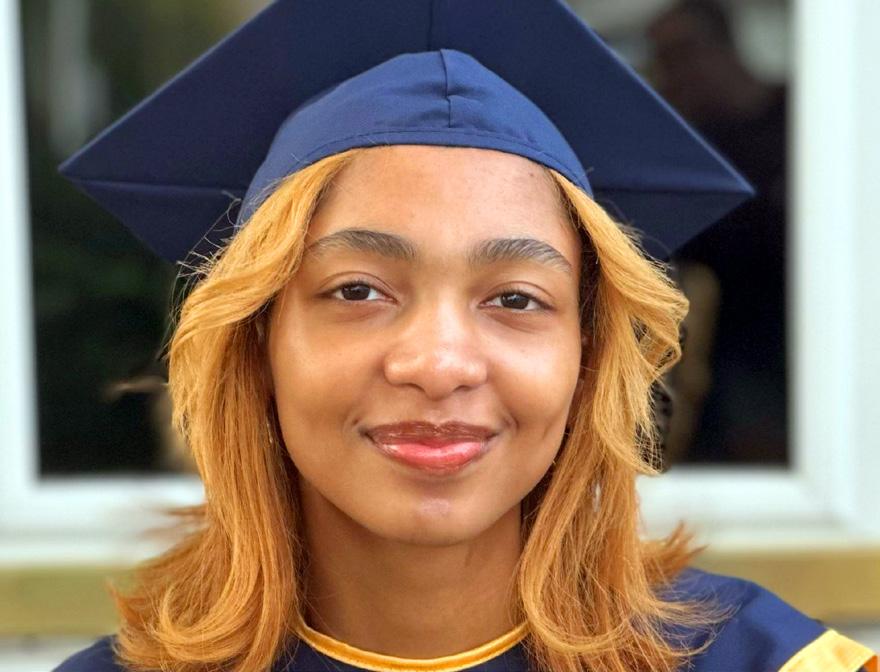


CATS invites minority, women, and socially and economically disadvantaged businesses to become Disadvantaged Business Enterprise (DBE) certified. As a DBE, you may have the opportunity to provide essential goods & services supporting CATS in delivering public transit services to the Charlotte-Mecklenburg region.
Whether you specialize in:
• Legal services

• Structural steel
• Electrical work
• Geotechnical services
• Interior finishes
• Engineering
• Welding
• Construction
Expand your horizons and make a difference in the Charlotte-Mecklenburg community.
Access new opportunities, connect with professionals, and receive the support you need to succeed.
Join us in building a stronger community.
The City of Charlotte does not discriminate on the basis of disability. To request a reasonable accommodation or modification please email telltransit@charlottenc.gov or call 704.336.7433.
To learn more about the DBE program, visit ridetransit.org and click on Civil Rights.
Scan the QR code to learn more about current opportunities at CATS:

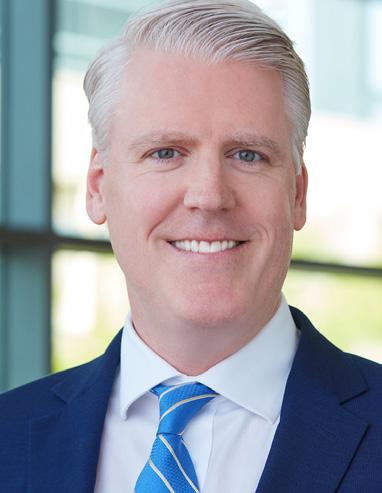
By Steve Bagwell CEO of the Charlotte Regional Visitors Authority
Charlotte is rapidly emerging as one of the fastest-growing cities in the nation — a place where people from all walks of life come together to create a vibrant and inclusive community. At the Charlotte Regional Visitors Authority (CRVA), we are dedicated to fostering this diversity by driving our visitor economy, building an inclusive community and championing Black- owned businesses that play a pivotal role in the economic growth of our city.
As the leading tourism organization for Charlotte, the CRVA is committed to promoting our city as a premier destination for meetings, conventions and events. We also manage key venues, including the Charlotte Convention Center, Bojangles Entertainment Complex, NASCAR Hall of Fame and the back-of-house operations at Spectrum Center. But our focus extends far beyond tourism — we are driven by the mission to ensure that the businesses fueling our economy reflect the diversity of the community we serve.
Our Vendor Diversity Program is one of the ways we are expanding opportunities for minority and women-owned businesses to engage with us and gain fair, equitable access to business opportunities.
Meeting and convention planners aren’t just looking for a modern, state-of-the-art Convention Center, they seek a destination that resonates with attendees. Charlotte’s “wow” factor is embodied in its people, the vibrancy of its neighborhoods and the leadership within our community. We work to uplift these voices, showcasing the spirit of hospitality that makes our city truly special.
Hosting groups like the Omega Psi Phi Fraternity, TD Jakes Ministries and Alpha Kappa Alpha Sorority in Charlotte has a profound impact. These events draw visitors from across the country, filling our hotels, dining in our restaurants and exploring everything our city has to offer. They provide a tremendous boost to our local economy while enhancing the visibility of our Black-owned businesses.
Since opening its doors in 1995, the Charlotte Convention Center has welcomed more than 11 million guests from around the globe. It has hosted six U.S. presidents, served as the backdrop for movies and TV shows, and drawn prestigious national events like the 2019 NBA All-Star Weekend, which alone generated an $87.7 million economic impact for the region.
As we look forward, our excitement grows for building new relationships with meeting and convention partners and continuing our support for local Black-owned businesses. Together, we are making Charlotte an even better place to live, visit, and conduct business.
To those joining us on this journey, we extend a heartfelt welcome to the Queen City. We hope you experience the very best of what Charlotte has to offer, from our vibrant neighborhoods to our thriving Black-owned businesses. Together, let’s continue celebrating the power of Black meetings and conventions, strengthening the bonds within our community and showcasing Charlotte as a city where diversity and economic impact go hand in hand.

Steve Bagwell, CEO Charlotte Regional Visitors Authority (CRVA)


CEO/Publisher
Dee Dixon
Editor
Alicia Benjamin
Copy Editor
Sonja Whitemon
Lead Writer
Angela Lindsay
Creative Director
Larry Preslar
Design & Production
SPARK Publications
www.SPARKpublications.com
Distribution
©Watch Dog Entertainment® LLC
Digital Content Distribution
Account Executive
Nikelle Fesperman
Public Relations
Nepherterra Estrada Best
Subscribe to Pride
$13.25. Please subscribe online at www.pridemagazineonline.com, mail to P.O. Box 30113, Charlotte, NC 28230 or call 704-375-9553
Letters to the Editor
Please send an e-mail to info@pridemagazine.net fax to 704-375-9550 or mail to Pride Magazine 8401 University Executive Park Drive, Ste. 122, Charlotte, NC 28262 www.pridemagazineonline.com

Copyright© 2024 Pride Magazine
All rights reserved. Copying or reproduction, in part or in whole, is strictly prohibited.
Pride Magazine reserves the right to deny any advertisement, listing or feature that does not meet Pride Magazine standards or that is outside the scope or mission of our magazine. Pride Magazine assumes no responsibility for information, products, services, or statements made by advertisers or editorial contributors.

Pride Magazine prints with soy ink.
Vol. 32 No. 6 November-December 2024
All rights reserved for PRIDE Communications Inc.



Find us on Facebook: Facebook.com/PrideMagazineNC Find us on Instagram: @pridemagazinenc Find us on LinkedIn: Pride Communications, Inc.
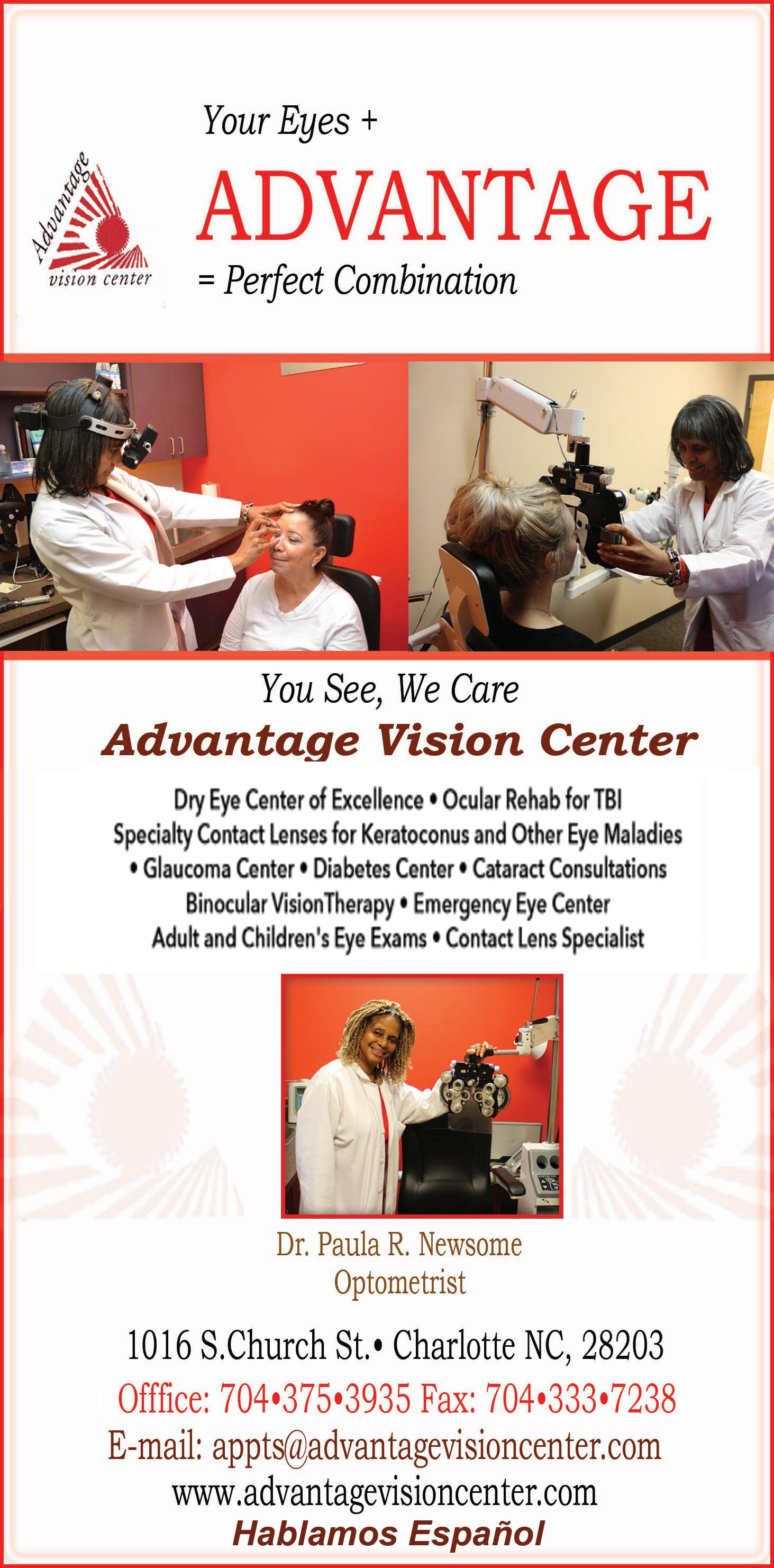
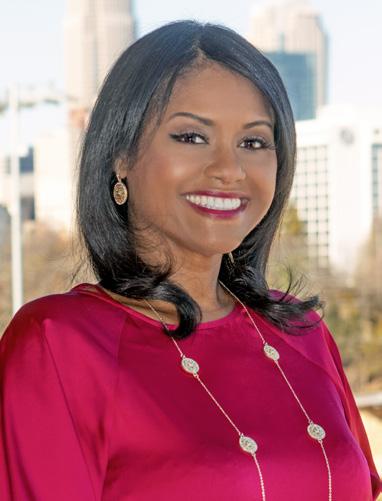
By Charisma Southerland President of Canopy
Realtor ® Association/ Canopy MLS
Buying a home is one of the largest financial transactions most people will undertake, and the recent National Association of Realtors® (NAR) legal settlement brought significant changes to that process and to the real estate industry. The NAR settlement is a response to a class action lawsuit that alleged NAR’s compensation rule artificially inflated commission rates and reduced competition in violation of antitrust laws. The settlement included $418 million in damages from NAR, paid out over four years, along with significant reforms aimed at enhancing transparency and empowering consumers.
For homebuyers, the settlement means signing a written agreement with a buyer’s agent before touring a home. But before signing this agreement, buyers should ensure that the agreement reflects the terms they negotiated with their agent, including the rate the buyer has agreed to pay for the agent’s services. Buyers should also be sure they have a clear understanding of the services being provided. These written buyer agreements apply to both in-person and virtual home tours, however, if a prospective buyer is just speaking with a listing agent (the agent representing the seller) at an Open House, no written agreement is required prior to the prospective buyer touring that home.
One of the most notable rule changes under the NAR settlement is that offers of compensation between brokerages is no longer permitted on the MLS (multiple listing service). Important to note is that while this is significant to agents who participate in the MLS, it does not change the fact that sellers are still able to offer compensation to a
buyer’s agent. Buyers may also request and accept concessions from the seller, which may include covering the buyer’s closing costs.
Under the NAR settlement, all real estate contracts, moving forward, must include a statement that broker fees and commissions are fully negotiable and not set by law. Listing agents must also disclose and obtain approval for any payment or offer of payment that a listing broker will make to another broker acting on behalf of a buyer. Disclosures must be made in writing in advance of any payment and must specify the amount or rate of payment.
Though the industry is adjusting to these changes, the NAR settlement does not change the fact that both listing and buyer’s agents are poised to help consumers navigate the process of buying and selling a home and are ethically obligated to work in the best interests of their clients. Compensation continues to remain fully negotiable.
When choosing an agent to work with, consumers should ask questions about the services a listing or buyer agent is prepared to provide. In turn, the agent should explain how the agent will be compensated for the services they will provide.
Canopy Realtor® Association created “247 Reasons why it’s worth working with a Realtor®” — an overview of the services and expertise that a Realtor® can provide to the consumer. Information has been organized into three categories: (1 activities both listing and buyer agents perform; (2) activities performed by the buyer agent; and (3) activities performed by the listing agent. This document and other resources are available at www.realtorvalue.com.
Charisma Southerland has been a Realtor ®/broker in North and South Carolina for more than 20 years. She currently works with the Allen Tate Company. In her role as president, Southerland works closely with the Executive Committee, helping to strategically plan and guide initiatives across entities under the Association, including Canopy MLS, Canopy Real Estate Institute and Canopy Housing Foundation.


to Your Local Mall to view the All-New Infiniti QX80, INEOS Grenadier, and VinFast All-Electric Vehicles from
Discover the All-New 2025 Infiniti QX80!
Experience the luxury of the all-new 2025 Infiniti QX80 With cutting-edge technology and unparalleled comfort, it’s a new standard in sophistication
Visit us today at Infiniti of Charlotte or SouthPark Mall to view the reimagined, entirely redesigned all-new 2025 QX80
SouthPark Mall
Located Near the Center Court 4400 Sharon Rd, Charlotte, NC 28211
Infiniti of Charlotte 9103 E Independence Blvd, Matthews, NC 28105

Group! Your Next Adventure Awaits 2024 Ineos Grenadier!
Get ready to elevate your adventures with the all-new 2024 INEOS Grenadier A utility 4x4 built for those who demand rugged performance and unmistakable style
Visit us today at Triad INEOS Grenadier or SouthPark Mall to view why the Grenadier is your ultimate companion for every journey
SouthPark Mall Located in the Luxury Wing 4400 Sharon Rd, Charlotte, NC 28211
Triad Ineos Grenadier 1730 N Main St Suite 1, High Point, NC 27262

Unleash the Power of the All-New, All-Electric VinFast!
Discover the VinFast V8 where power meets luxury With its high-performance engine and sleek design, it’s engineered to impress
Visit us today at Triad VinFast or Concord Mills Mall to view why VinFast is setting a new standard for electric car companies
Concord Mills Mall Located Inside Entrance 2 8111 Concord Mills Boulevard, Concord, NC 28027
Triad VinFast 3604 W Wendover Ave, Greensboro, NC 27407
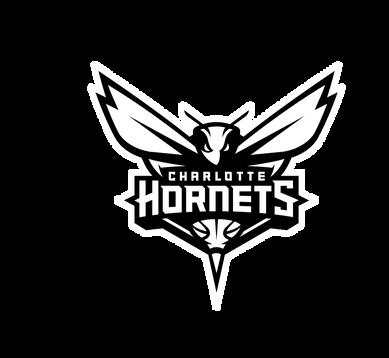




By Alicia Benjamin
Co-founder, Serving
the
Culture and Executive Director, Applesauce Group
CRVA is partnering with Robinson through Serving the Culture to better tell the story of West End Charlotte’s rich history and promising future. He’s currently consulting with CRVA on a content project supporting the NAACP Conference coming to Charlotte in 2025.
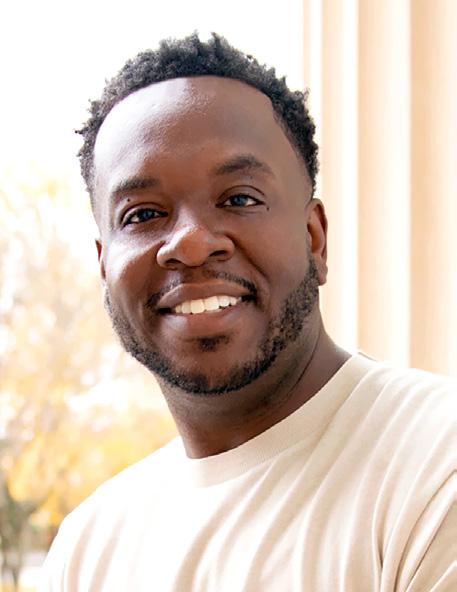
Robinson’s nonprofit, Applesauce Group, started with its flagship event in 2017 — a celebration in the Beatties Ford Road corridor called “A Vibe Called Fresh” that has since become a catalyst for change and empowerment, Robinson said. “Whether through art, music or social engagement, we design events where attendees feel safe, joyful and connected.”
Serving the Culture celebrates Black chefs, culinarians and mixologists with a series of tasting dinners. Robinson said these culinary events “offer a multisensory experience, combining the artistry of food with the soul of music to create the ultimate feel-good atmosphere that redefines fine dining.” He produced a special Serving the Culture media event for the NOMADNESS Fest in September. NOMADNESS Fest, a weekend for travelers of color and their allies, brings the stories, leaders and resources of this community together, in one place.
Co-founders of Hue House
CRVA is partnering with Hue House to provide counsel, advocacy and support for the organization’s arts and culture efforts. Hue House is a creative agency, led by co-founders David “Dae Lee” Arrington, Davita Galloway and David J. Butler.

The leaders of Hue House help clients develop brand identity, messaging, marketing strategies and creative production. They help clients organically communicate and connect with their target audiences. CRVA partnered with Hue House on the latest edition of Charlotte Love Notes: Pride in the summer. Some of their other clients include Queens University of Charlotte, Charlotte Ballet, Knight Foundation and the Charlotte Football Club.
President and Talent Buyer, Key Signature Entertainment
CRVA works closely with Key Signature Entertainment’s owner and Talent Buyer, Brandon Crumpton, as part of its Partners in Tourism program. Key Signature Entertainment provides research, vetting, live concert production and band booking for live, hybrid and virtual events in the Charlotte area.

Crumpton began booking live music for events 16 years ago, and now Key Signature Entertainment books an average of 600 special events and private parties a year. CRVA named Crumpton’s company as the 2018 Service Provider of the Year, an honor that key decision makers in Charlotte’s hospitality and events industry voted on.
Key Signature Entertainment has provided services for live concerts, festivals, conventions, holiday events, conferences, weddings, fundraisers and more.
Director
Teddy leads CRVA’s Charlotte Convention Center Food and Beverage team, which in addition to serving the tens of thousands of guests that come through the convention center each year, also has a great community giving partnership with Second Harvest Food Bank and Stew of Sustainability, said Cassie Townsend, Director of Digital Media and Content for CRVA.
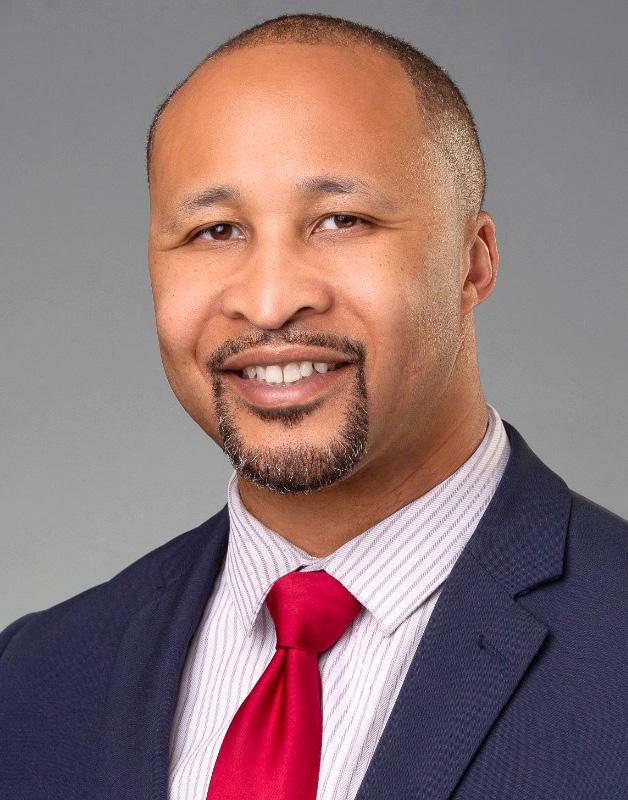
Stew of Sustainability is an organization in Charlotte that fights against hunger by working with food service providers to give food, which would otherwise be thrown away, to those in need. Second Harvest Food Bank provides a regional distribution warehouse and branches that supply food and grocery items to charitable agencies that assist people who need the donations. They currently serve 24 counties in North Carolina and South Carolina.

Giving back is important to you - especially during the season of giving. Wherever your charitable passions and priorities lie, you can make an even greater impact by giving through Foundation For The Carolinas.
Your generosity is amplified by our grantmaking experience, investment expertise and deep knowledge of local needs and nonprofits. We make it easy for you to make more good possible — for the causes you value and the community you call home.
Contact us at philanthropy@fftc.org to get started.
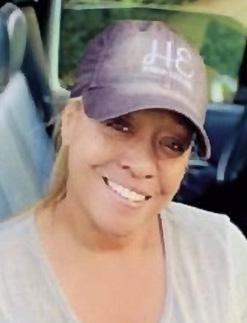
By Dawn HiltonWilliams
As the holiday season approaches, many of us find ourselves at a crossroads between family food tradition and an urgent call to embrace healthier habits. But what if I told you that embracing our true culinary heritage aligns perfectly with plates brimming with soulful, healthful flavors?

Scan the QR code below to view the recipe for Curried peas and potatoes by chef Dawn Hilton-Williams.
Much of the culinary legacy we enjoy today has been passed down to us through lineage. Through the torment and brutality of the transatlantic slave trade, ancestral women had the instinct and wherewithal to preserve seeds by braiding them into their hair. Cultivated in the face of inconceivable daily hardships, those seeds endured, birthing a cuisine steeped in heart and soul.
From collard greens, black-eyed peas and lima beans to yams and watermelon, plants that once sustained our ancestors, here and in the motherland, have become longstanding symbols of pride and tradition.

Over time, our ancestral diet evolved into soul food, which has become highly processed, meatdominant and a significant contributor to chronic diseases in our community. The good news is there’s a clear path to both cultural celebration and wellness.
• Considered to be one of the oldest crops ever farmed, cowpeas or black-eyed peas have been found as early as 2,300 B.C. in Ghana. These nutrient-packed legumes have nourished us for millennia.
• Originating in eastern Africa, okra was first cultivated in Egypt in 1216. Rich in fiber, vitamins C and K, folate and magnesium, okra has been a versatile staple in our cuisine for centuries; not just the pods, okra leaves can be cooked like greens, and its seeds are often roasted as a caffeine-free coffee substitute.
With over 6,000 studies and counting, scientific evidence supports the health benefits of a whole food, plant-based (WFPB) lifestyle. Large-scale studies like the Adventist Health Study and the China-Oxford-Cornell Project have shown that this way of eating can prevent, arrest, and sometimes even reverse chronic diseases. Research also
genes behave, with plant-based diets promoting overall wellness, including but not limited to gene expression.
With science confirming ancestral wisdom, let’s explore an easy transformation this holiday season:
Center your table with colorful, plant-based dishes such as stewed okra and tomatoes, collards, black-eyed peas and curried chickpeas with sweet potatoes. Transform traditional recipes by swapping out the smoked meat products for smoked paprika and liquid smoke, giving collards, black-eyed peas and other savory dishes big flavor without the use of animal products.
By incorporating these easy, cost saving changes, we fulfill a vision our ancestors held when they preserved those life-giving seeds. More than just survival, their actions reflected intention around staying connected to the healing power of food and memory of home, making every plant-based dish a living tribute.
Let’s write a new chapter that honors ancestral resolve and cultivates a legacy of vibrant wellness. P
Dawn Hilton-Williams, fondly dubbed the Vegucator, is a 100% whole food, plant-based certified nutrition professional, clinically endorsed vegan chef, author and wellness equity activist.






Tryon Medical Partners is honored to have achieved several prestigious statewide and national rankings for medical excellence: Castle Connolly Top Doctors #2 in United States — Top Physician Practices, Primary Care #1 in North Carolina — Top Physician Practices, Primary Care
U.S. News & World Report

Tryon Endoscopy Center ranked among North Carolina’s best ambulatory surgery centers
While we are humbled by these accolades from our peers and medical experts, we know that the ultimate measure of success is to be the first choice for our patients, year after year.
Experience the Tryon difference today: tryonmed.com






By Angela Haigler
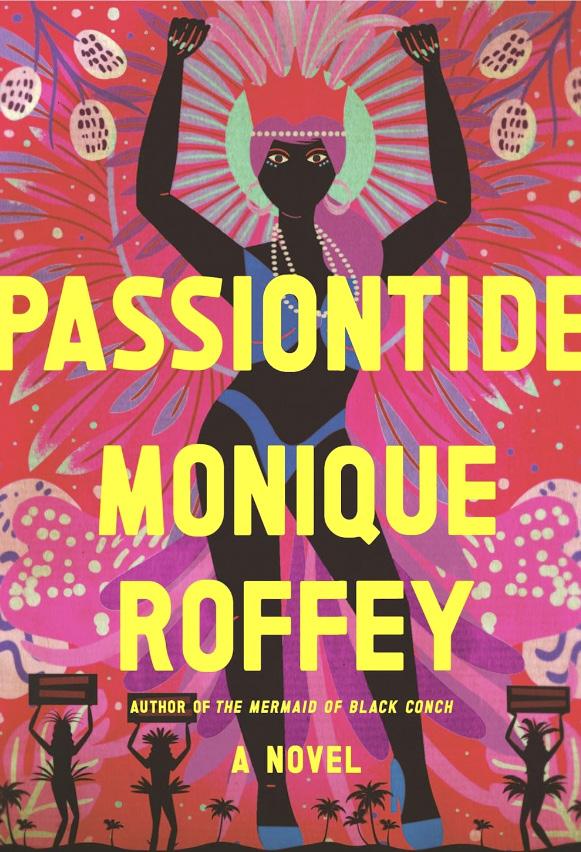
“Passiontide”
by Monique Roffey
A slightly different take on a detective novel, Roffey brings four women together from different sides of life to solve a murder. The death of a musician on a small tropical island took everyone on the by surprise. Was this part of a recent string of deaths? This was supposed to be a time for celebrating and appreciating the culture. It would take the brain power of all four women to discover what happened and the result is a surprising one.


“Justice
by Julius Garvey
Marcus Garvey (1887-1940) was a Black political activist, journalist, entrepreneur and orator who founded the Universal Negro Improvement Association and African Communities League. Edited by his son, Julius Garvey, “Justice for Marcus Garvey” is a collection of informative essays and personal narratives about the senior Garvey’s life and work, demonstrating his essential influence on current social justice movements. The book features contributions from thought leaders and activists, including a foreword by Ta-Nehisi Coates.
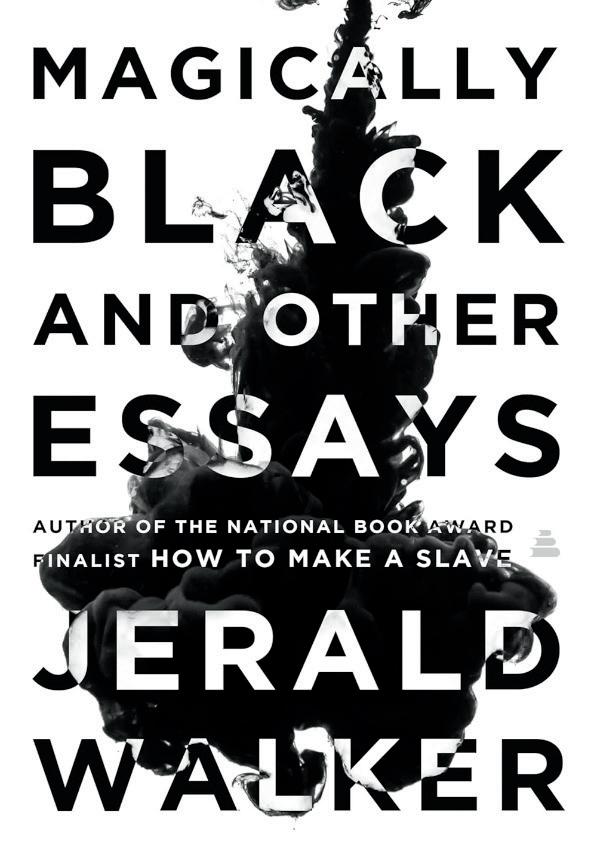
by Jerald Walker
In “Magically Black and Other Essays,” Jerald Walker elegantly blends personal revelation and cultural critique to create a bracing and often humorous examination of Black American life. He thoughtfully addresses the complexities of topics as eclectic as incarceration, home renovations, gentrification, the crip walk, pimping, and the rise of the MAGA movement. The collection’s overarching theme is captured in the titular essay, which examines the culture of heroic action African Americans created in response to their enslavement and oppression.
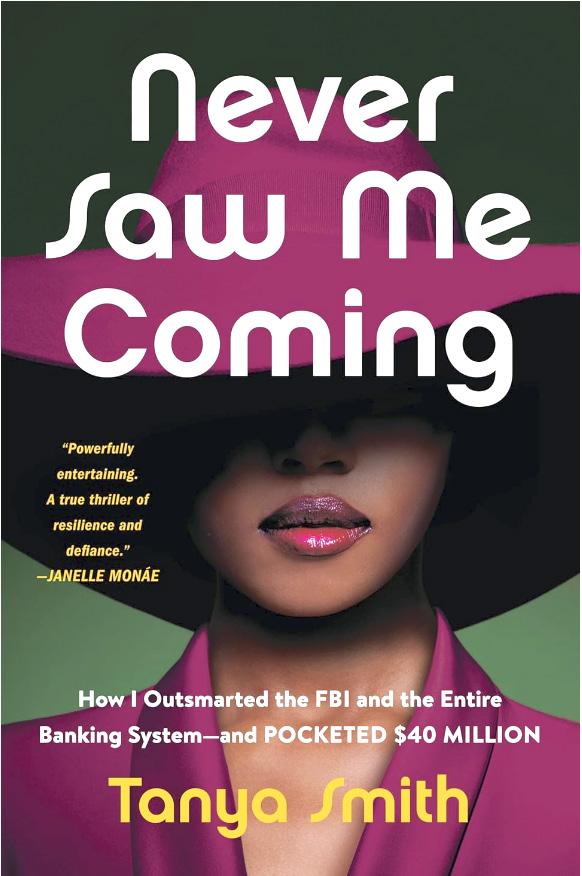
“Never Saw Me Coming: How I Outsmarted the FBI and the Entire Banking System—And Pocketed $40 Million”
by Tanya Smith
In this tale of intrigue and unexpected turns, we learn that one of the most clever and manipulative white-collar thieves in United States history was a Black woman. Tanya Smith outsmarted the banking industry, figuring out how to use her tech skills to confiscate millions in cash. When she was finally brought in for questioning by the FBI, they assumed she was working for someone else, because surely a Black woman couldn’t be savvy enough to outsmart the Federal banking system. Slapped with an outrageous prison sentence, she mounts her own brilliant defense.
This powerful and hopeful picture book — inspired by the historic election of Vice President Kamala Harris — celebrates brown and Black girls and is beautifully illustrated. Based on a viral poem by Blaxican poet and activist Leslé Honoré, and illustrated by Caldecott Honoree Cozbi A. Cabrera, this moving foray into the past, present, and future of brown and Black girls is a celebration of community, creativity and joy. The story offers a reminder of the history that inspires hope, and the hope that inspires activism. P








By Brenda Porter-Rockwell
Blending Southern hospitality with modern amenities and infrastructure, Charlotte’s central location, top-of-the-line convention center and lively cultural scene make the city an obvious choice for event organizers looking to host a memorable Black meeting or convention.
In just the last decade, the city has booked 200 Black meetings and conventions, resulting in hundreds of

thousands of attendees from fraternities and sororities, national and regional associations, and professional service organizations of all sizes. And those figures are expected to grow revenue for and interest in the city, said Christa George, National Sales Manager for Visit Charlotte,
a division of the Charlotte Regional Visitors Authority (CRVA).
“We’re incredibly proud of the personalized service we offer [for] all events through our Destination Services team. We have many repeat events and conferences because the attendees and organizers have
such a great experience in Charlotte,” said George.
The city has hosted large events with attendance counts in the 10,000s, such as the 2022 Omega Psi Phi Fraternity Grand Conclave and the 2022 T.D. Jakes International Leadership Summit. This year, Alpha Kappa Alpha Sorority’s MidAtlantic Regional Conference and Alpha Phi Alpha Fraternity’s Regional Conference each had a total attendance of between 2,000 and 5,000 attendees. Additionally, the Jack and Jill of America Mid-Atlantic Teen Conference, the National Alumnae Association of Spelman College True Blue Sister Summit and The Black Owner & Women’s Collective Capital Conference were among the smaller-scale events held.
With 2024 nearing a close, Charlotte will host the Black Enterprise BE Smart HBCU Hackathon in December. Looking ahead, the Higher Education Leadership Foundation will come to the Charlotte Convention Center in May, followed by the NAACP National Convention, which will be 2025’s marquee event in mid-July. The NAACP National Convention will bring multiple opportunities to the Queen City. The registration link for the NAACP convention is naacp.org/convention.

One of the city’s top selling points is accessibility. Planners can count on Charlotte’s robust transportation and infrastructure systems to get travelers to and from destinations. For convention and meeting attendees, the airport’s proximity — just seven miles from downtown — makes transportation quick and convenient. Additionally, the city has a robust road and rail network, making it easily reachable by car or train from neighboring regions. This level of accessibility is a significant attraction for organizers seeking to maximize attendance at their events.
The recently expanded Charlotte Convention Center is a top venue for large
conferences, trade shows and exhibitions. The Charlotte Convention Center has over 550,000 square feet of flexible space, including ballrooms, breakout rooms and expansive exhibit halls. The center is also conveniently located in the heart of Uptown, within reach of hotels, dining and entertainment.
For smaller meetings or more intimate offsite events, venues such as the Harvey B. Gantt Center for African-American Arts + Culture are suitable, George said. The Gantt offers a distinctive meeting space with built-in artistic attractions and is in the heart of Charlotte’s convention district. The area
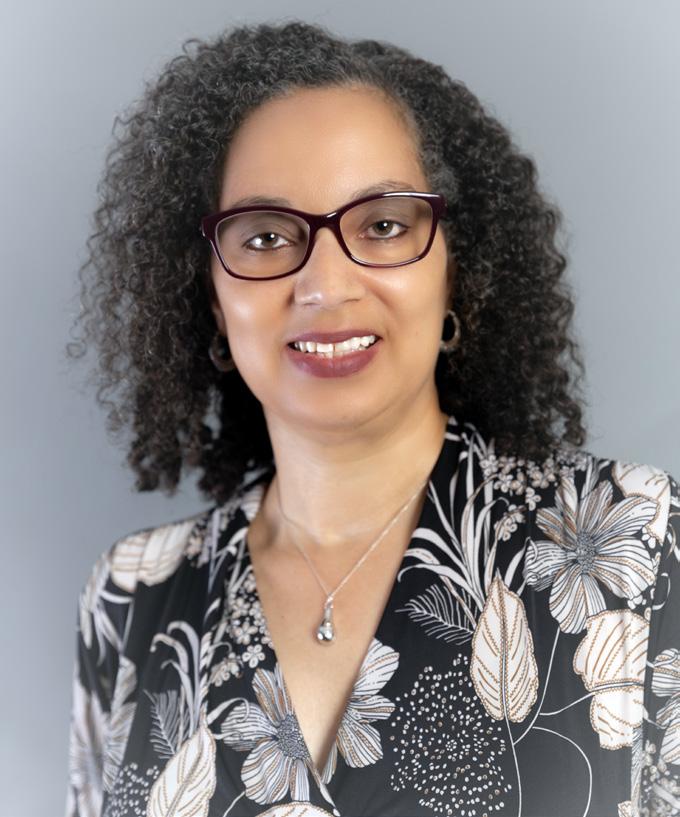

When it comes to planning, there are multiple factors to consider such as price, amenities and accessibility. Those details are extremely important, but planners are asking more of their host city these days.
“Organizations are now looking for host cities to partner with them,” said George.

“They look to us, the CRVA, to connect them with Black-owned businesses so they can support the local community and make an impact while they are here. Today, hospitality is the region’s fourth largest industry sector, employing 1 in 9 residents.”
In addition, host cities must respond to the technological needs of today. George stated that planners must keep up with the latest trends in technology and how to incorporate those trends into their event to create an optimal experience. Of course, the CRVA is ready and willing to respond to those needs.
“During the pandemic, virtual meetings were necessary to keep members connected. However, it didn’t take long to discover the importance and benefits of in-person meetings,” said George.
was once known as the historic Brooklyn neighborhood, an epicenter of the Black community that was razed in the 1960s.
“Charlotte provides a welcoming and inclusive local community, making us a great host for meetings and conventions. Groups want to feel valued when they come to a city, and in Charlotte, they get all the attention,” George added. "Our local organization chapter representatives in the city are always eager to bring their groups to Charlotte," said George.
“That support is beneficial when clients are considering multiple destinations. We have learned that when clients come to Charlotte and experience the city firsthand, they are more likely to select Charlotte or consider us for a future meeting,” said George.
The most significant events that come to Charlotte are years in the making. From large-scale conferences or smaller, more intimate gatherings, George said, the Queen City offers the resources needed to ensure a successful and memorable event, “including personal touches from our team that go above and beyond.”
“My approach is understanding clients’ needs and presenting them with solutions while building trust through relationships. I have seen the city evolve so much over the past 32 years,” she said. “I am blessed to be able to be a part of an industry that provides measurable impact in the Charlotte community, including employment opportunities, local business support and increased quality of life.” P


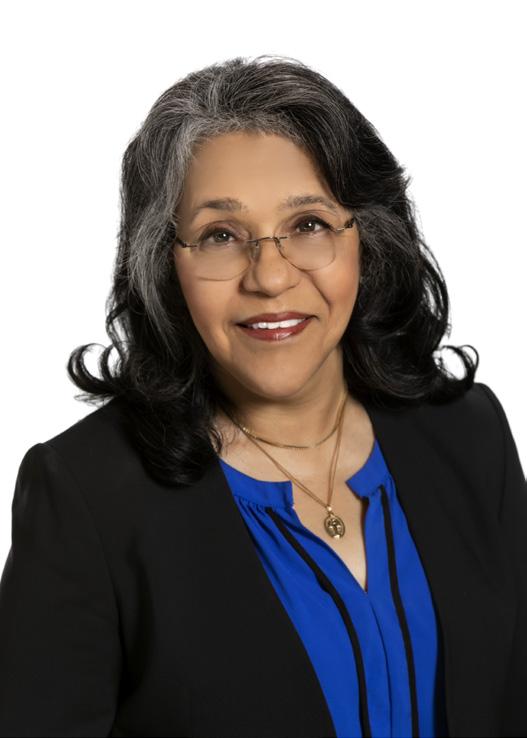

By Derik Hicks
Charlotte is more than just a hub for banking and professional sports; it’s a city rich in history, culture and community, warmly inviting visitors from around the world. According to the Charlotte Regional Visitors Authority (CRVA), visitors spend $8 billion annually in the Queen City. Many tourists enjoy immersing themselves in experiences that combine southern hospitality with the vibrancy of its diverse culture, much of which is enhanced by Black-owned businesses.
The CRVA plays a pivotal role in promoting Charlotte’s diverse tourism landscape, ensuring visitors enjoy everything the city offers. “Promoting Charlotte’s everevolving identity to prospective visitors is a

huge task,” said Laura White, CRVA’s senior director of Brand Marketing & Strategy.
“The essence of the ‘Charlotte’ brand that invites visitors to experience the destination is all about telling the stories of the Queen City through the eyes of the people who are making this city amazing. To do that, we need to enlist the voices, viewpoints, and experiences of many, and that’s why we’re consistently looking to partner with vendors and resources who can help us tell this story in new and effective ways,” she said.
Among the many gems CRVA supports, three Black-owned businesses stand out: NC Tours, Society at 229 and the Brooklyn Collective, and Power Up USA. These businesses celebrate Charlotte’s Black heritage while inviting visitors to engage with the city’s evolving cultural fabric.
Let’s take a closer look at these inspiring Black-owned enterprises.
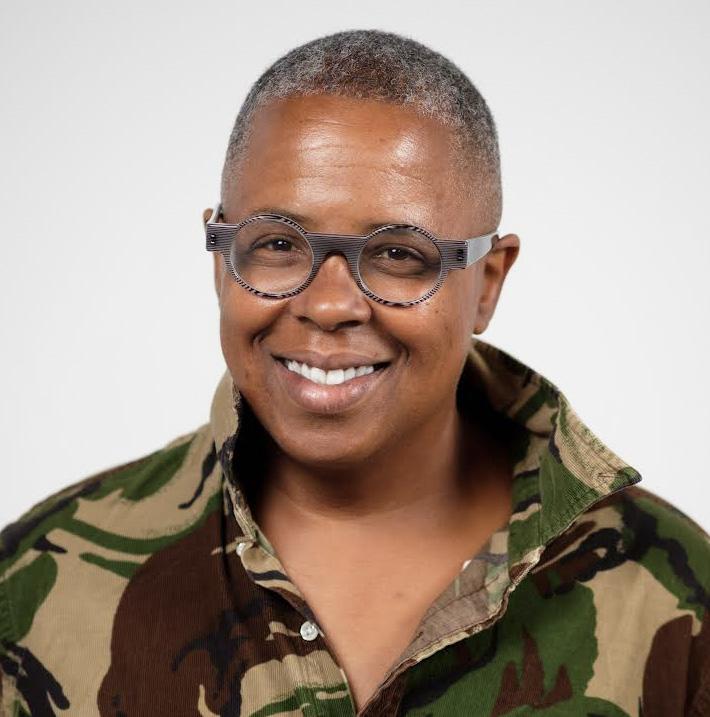
NC Tours offers an insightful journey through Charlotte’s history. Founded in 2009, this tour company provides experiences on foot, by bike, van, bus, Segway and Rydables (stuffed-animalcovered electric carts). “Partnering with CRVA, we’re working to make Charlotte a destination city by developing unique
ways to highlight the city,” said the owner, Dianna Ward.
One of their flagship offerings is the “Charlotte Black/African-American Heritage Tour,” which explores the West End and historic Brooklyn neighborhood, a former hub of Black businesses, churches, and schools before it was demolished in the 1960s due to urban renewal.
“On our tours, we introduce our patrons to people. We’re not just riding by, we are meeting the owners of various businesses and tasting their delicacies,” Ward said. “The tours are not just African American history, but also American history related to Charlotte. Our customers come from all over the world. Although NC Tours is Blackowned, it’s not just for Black tourism.”
For history buffs, curious travelers or locals looking to reconnect with their city, NC Tours provides an enriching and eyeopening experience. Visitors gain a deep understanding of the city’s heritage, which can enhance further exploration of Charlotte’s historic sites, museums and galleries.

Society at 229, formerly located in Uptown Charlotte and operated by Kevin and Monique Douglas, served as a gathering place for creatives, professionals and locals seeking conversations about community, cultural events and live music. “Society at 229 was a hub for Black culture in Uptown Charlotte,” said Kevin. Although the doors officially closed in September, it left a lasting legacy in the Brooklyn neighborhood — a historically Black area.
The Brooklyn Collective, which is still in operation, is a powerful example of community revitalization and cultural preservation. Housed in a historic building


itself, the Collective serves as a co-working space, gallery and event venue.
“Tourists are looking for a place where they can find good entertainment, where they could feel safe, and also feel like they’re getting a taste of the city that they’re in,” explained Monique, who is executive director of the Brooklyn Collective. “We’re surrounded by many fullservice hotels and we’re in walking distance of them. This allows tourists to have a place where they could come and enjoy fine art.”
CRVA connects event organizers seeking unique VIP spaces with the Brooklyn Collective, further contributing to Charlotte’s annual $8 billion tourism economy. The venue continues to thrive, offering an authentic taste of Charlotte’s culture for locals and visitors.

Tommy Nichols, founder of Power Up USA, produces the Queen City Arts Festival and the Charlotte Black Film Festival (CBFF). Held on Labor Day
weekend for the past four years, the Queen City Arts Festival showcases spoken word performances, music, dance and more.
The Charlotte Black Film Festival, celebrating its 15th year in 2025, has become a key event for filmmakers, actors and movie enthusiasts. “The CBFF is a boutique event that attracts filmmakers and creatives from around the world,” said Nichols. “While it doesn’t draw tens of thousands of visitors, the impact extends beyond the festival, reaching audiences via social media and international exposure. For two years, we’ve welcomed visitors from over 30 countries, and Hollywood executives often recommend the CBFF as one of the top five festivals filmmakers should attend," he said.
Nichols’ work has helped put Charlotte on the map as a city that fosters artistic expression and provide opportunities for emerging filmmakers to share their stories. The festival brings Black stories to the forefront, making a lasting impact on Charlotte’s cultural scene.
According to White, “These are three vendors enriching Charlotte’s tourism scene through their expertise. Their businesses and events contribute to the tapestry of experiences that continue to make Charlotte a growing, vibrant community.” Charlotte’s Black-owned businesses provide visitors with more than just services, they offer deeply rooted experiences in culture community and creativity.
These Black-owned businesses, along with the Queen City Arts Festival and the Charlotte Black Film Festival, are vital to the soul of Charlotte’s Black
“These are three vendors enriching Charlotte’s tourism scene through their expertise. Their businesses and events contribute to the tapestry of experiences that continue to make Charlotte a growing, vibrant community.”

community. Their contributions to the city’s tourism landscape not only enhance the visitor experience but also celebrate Charlotte’s entrepreneurial and cultural spirit.
For those looking to explore Charlotte through a new lens, these businesses offer the perfect starting point, making every visit an unforgettable journey of discovery and connection. P


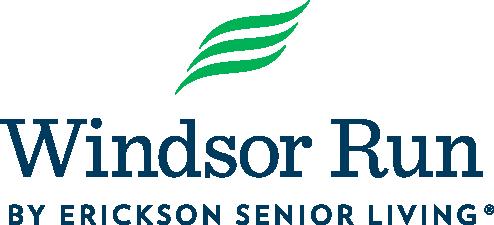
At Windsor Run®, Southeast Charlotte’s premier senior living community, experience senior living with style, ease, and independence. With everything you need just steps from your door, you’re free to live a worry-free retirement with the safety net of support of an Erickson Senior Living®-managed community.
At Windsor Run, you don’t just gain a beautiful apartment home. Stunning apartment homes like The Bradford, a one bedroom, one and a half bath, and The Hawthorne, a two bedroom, two bath, are perfect for maintenance-free, stress-free senior living.
Plus, you gain freedom from the hassle and high cost of home maintenance and surprise repairs. Enjoy modern finishes and appliances as well as the option to customize your space to make your new home truly yours.
We are dedicated to you and your safety no matter your needs. You can rest easy with an onsite medical center and additional levels of care should you ever need it.
There are plenty of opportunities to be active and social at Windsor Run.
Take a fitness class. Have dinner with a friend at a one of our many, on-campus restaurants. You could join a new club or activity. Visit the pool. With plenty to do, you have options to engage as much or as little as you want.
There’s never been a better time to learn about stylish senior living and a worry-free retirement with Windsor Run.
Call 1-800-983-7609 or visit WindsorRunCommunity.com to request your FREE brochure.


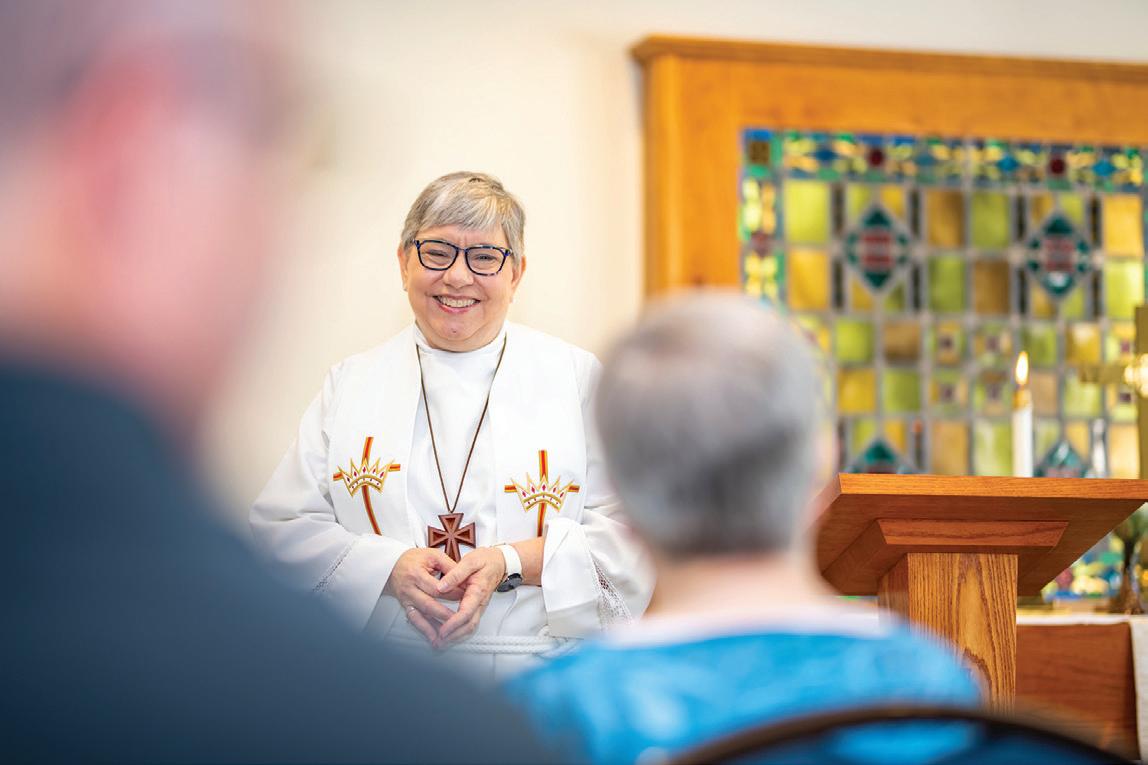


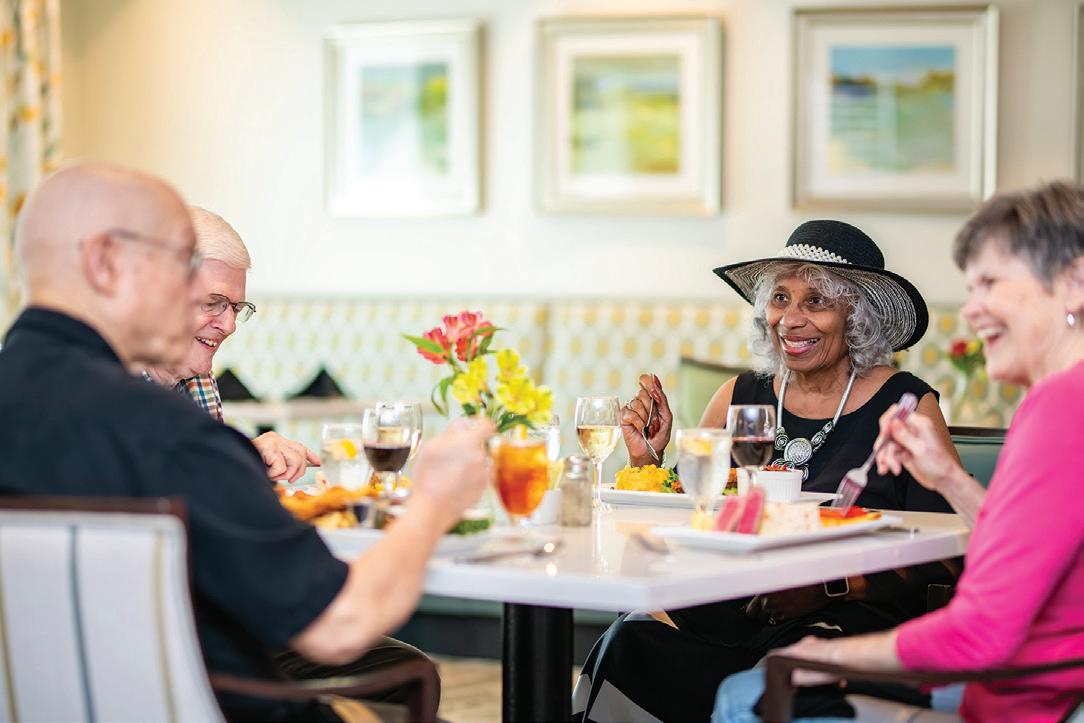


Enjoy Active Senior Living at Trinity Oaks
Celebrate all seasons of life at Trinity Oaks! Our welcoming community is perfect for retirees seeking warmth and relationship. Explore our scenic 50-acre campus and enjoy the beauty of Salisbury. Our amenities are tailored to your lifestyle, offering an ideal setting for the next chapter of your life. Come and see for yourself.
Visit our website at TrinityOaks.net to learn more about our Independent Living residences, Assisted Living, Health & Rehab, and Memory Care or you can scan the QR code or call 704-603-9202.
Trinity Oaks is an affiliate of Lutheran Services Carolinas in Salisbury, NC.
By Sonja Whitemon
Drive up U.S. Highway I-77, take exit 23 in Huntersville, N.C., and you enter a small slice of American history. The historic Pottstown neighborhood was created by formerly enslaved people after the Civil War.
Pottstown is named for Ortho Potts. “He was a very prominent man. He moved here from around the Asheville area. He was a farmer and a brick mason, and he was highly sought after for his brickwork,” explained Pottstown historian and author Bee Jay Caldwell.
According to Caldwell, when Mr. Potts migrated to the Huntersville area, free Black people, such as indentured servants
in even the most basic aspects of life. Segregation was strictly enforced in areas that included public parks, restrooms and restaurants; so Black children certainly were not allowed to attend schools with white children.
There was no school for Black children in Huntersville. They had to travel to schools in other parts of Mecklenburg County — some even moved in with

and descendants of the enslaved people were relegated to a certain area of town.
“The slave quarters,” she said were about a block from the area where Mr. Ortho settled. “It is near where central Piedmont’s north campus is now.” Those families built their churches, their schools and their homes there. Many of those buildings still exist.
St. Phillips Missionary Baptist Church, built in 1876 in Huntersville, celebrated its 148th anniversary this year; also, Huntersville AME Zion Church was built in 1898. Ten churches in the area were built by formerly enslaved people more than 100 years ago.
During this period after the Civil War ended in 1865, and throughout the Jim Crow era, Black Americans were restricted
relatives who lived near schools designated for Black students. Most Black children only attended school three months out of the year because they helped plant and harvest crops. Cotton was a major industry.
Julius Rosenwald, a very wealthy philanthropist and businessman, was a part owner and president of Sears Roebuck. He was instrumental in bringing schools for Black children to southern states. Rosenwald believed that the Black American’s struggles were much like those of Jewish people throughout history. Upon meeting Booker T. Washington, a former slave and renowned educator and leader of Tuskegee Institute, Rosenwald was convinced to use his wealth toward educating Black children. Through the Rosenwald Fund, an elementary school

Above: Bee Jay Caldwell, Pottstown historian, addresses the crowd at a Juneteenth Festival of the Carolinas celebration in Charlotte.
Left: “Historic Pottstown” mural in Huntersville, N.C.
Below: Bee Jay Caldwell’s book, “Historic Pottstown Families in Stories and Photos” was published in 2016.
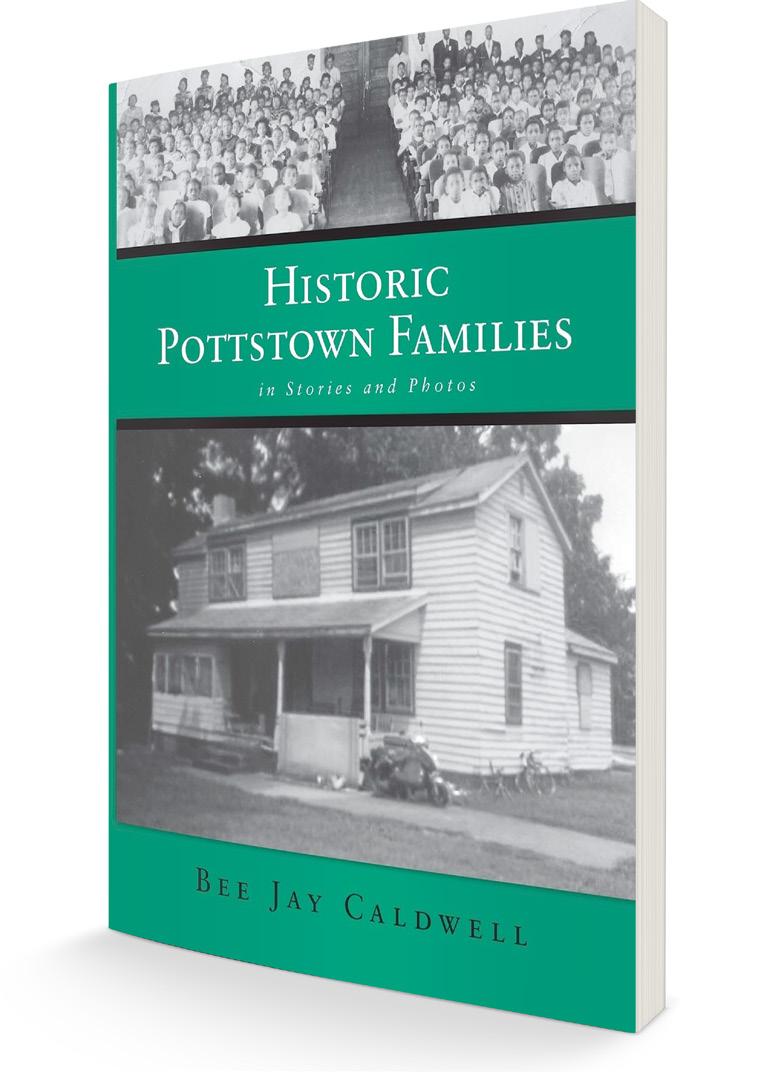

was developed, but there still was no high school for Black children in Huntersville.
The Huntersville Colored School opened in 1937. It was later named Torrence-Lytle High School and was the only high school for Black children in northern Mecklenburg County. Torrence-Lytle was the glue that brought people together. Children came from surrounding cities to attend high school. The school closed in 1966, but the building is still there and has been recognized as a historic landmark.
The town of Huntersville was incorporated in 1873. Historically known for its cotton farms, today Huntersville is one of the fastest-growing cities in North Carolina and offers upscale living to professional athletes and other highly paid professionals.
The cost of a single-family home in Huntersville can start in the mid$300,000s and go well above $1 million. With its continued population growth, new commercial and residential developments are sprouting everywhere; so much so that Pottstown residents became concerned about losing their neighborhood to developers. Gentrification had come for Pottstown.
The term gentrification was first used in London in the 1960s to describe the influx of a new “gentry” of wealthy people into low-income neighborhoods. A Brookings Institute report defined gentrification as “…the process by which higher-income households displace low-income residents of a neighborhood, changing the essential character of that neighborhood.”
Gentrification has become common in neighborhoods across the U.S. When it hits, old established neighborhoods are bought out, sometimes house by house, replacing the stability of older neighborhoods with wealthier residents, a higher cost of living and higher property taxes — displacing Black residents and creating housing instability and even homelessness for some.
Much of the land and homes in Pottstown are owned by the descendants of the formerly enslaved and free Black people, such as former indentured servants and sharecroppers who owned the land and

built the homes in the 1800s. The current residents, former residents, descendants and their families want to retain their land and homes as well as the culture and history of Pottstown.
“[Pottstown] is rich in history,” said Latoya Rivers, member of the Huntersville Board of Commissioners. “The structure of the houses may not be much but the land is rich and people don’t understand,” she said. Rivers said she can track the beginnings of gentrification in Pottstown to about 20 years ago.
“I remember a developer came in and he purchased a lot of land around the community,” Rivers said. “He would offer people maybe like $20,000 to purchase their homes and some people felt like that was plenty for them and sold. So, to sell out and not really understand the value of what you have or what your ancestors created for you is really disheartening.”

In 2022, residents were concerned about a proposed subdivision called Valea Village. They worried about increased traffic and likely tax increases among other concerns. The development was to be a community of 36 single-family homes on 30 acres of vacant land that borders Pottstown.
Ultimately, Mecklenburg County Commissioners unanimously voted to purchase the property for $1,724,000. At the time, County Commissioner Pat Cotham was quoted as saying, “It was just the right thing to do. We believe in equity and diversity and the history. It just made sense for us to do this and protect it for history as we have protected other properties.”
The county is working with residents to determine future plans for the property. P


By John Burton Jr.
From their distinctive calls and chants, their creatively choreographed steps and strolls, to the brightly emblazoned letters across their chests, the presence of Black Greek Letter Organizations (BGLOs), also known as fraternities and sororities, is unmistakable on college campuses, in communities and around the world.
Name of Organization Year Founded and Location
Alpha Phi Alpha Fraternity, Inc. 1906 at Cornell University
Alpha Kappa Alpha Sorority, Inc. 1908 at Howard University
Kappa Alpha Psi Fraternity, Inc.
Omega Psi Phi Fraternity, Inc.
Delta Sigma Theta Sorority, Inc.
at Indiana University
at Howard University
at Howard University
Phi Beta Sigma Fraternity, Inc. 1914 at Howard University
Zeta Phi Beta Sorority, Inc. 1920 at Howard University
Sigma Gamma Rho Sorority, Inc. 1922 at Butler University
Iota Phi Theta Fraternity, Inc. 1963 at Morgan State University
Comprised of nearly 4 million members on the undergraduate and graduate levels, the Divine Nine has left an indelible impact on the Black community. These organizations transcend a social club function by upholding principles of brotherhood, sisterhood, scholarship and service. With a history spanning over a century, BGLOs have played a crucial role in shaping the Black experience by offering vital assistance, nurturing individual development, scholastic success and involvement in the community for their constituents via scholarship, mentorship and more.
Historically, BGLOs have been closely intertwined with the experiences of Blacks in America, particularly during an era of racial segregation and discrimination. They provided nurturing environments for Black students seeking intellectual stimulation, social support and a sense of belonging, countering the prevailing racism and prejudice in society.
One of the most significant contributions of BGLOs has been their role in promoting academic excellence. Through initiatives such as mentoring programs, tutoring services and scholarship funds, BGLOs have helped numerous Black students overcome educational barriers to achieve their academic goals. It’s these efforts that enticed many into seeking membership.
“I joined Sigma Gamma Rho because I had strong influences from one my high school teachers,” said Mary Randle, member of Sigma Gamma Rho Sorority, Inc. “My teacher nurtured me through our high school years through various programs, and I never forgot her or the sorority she was a part of.”
“When I was a student at Winthrop University, it was the Kappa men that I looked up to,” said County Commissioner Mark Jerrell, member of Kappa Alpha Psi Fraternity, Inc. “They were well-rounded, well-dressed gentlemen that not only made our campus better but made an impact on Winthrop and beyond.”
Whether on campus or off, the camaraderie among Black fraternities and sororities is undeniable. “Without a doubt, the most rewarding experience has been the brotherhood,” Dacovan Cloud, member of Iota Phi Theta Fraternity, Inc. “When I saw the work they were doing in the community and virtually through education, I knew I wanted to be a part of that,” Cloud said.
These contributions played a crucial role in preserving Black culture and

heritage through various cultural programs and historical preservation efforts. Service to others is a cornerstone value of each of the BGLOs.
The opportunity to serve others is rewarding for many. “My parents instilled this value in me growing up,” said District Court Judge Keith Smith, member of Phi Beta Sigma Fraternity Inc. “Phi Beta Sigma strengthened this value even more.” For others, membership in these organizations has proven to be personally advantageous. “The most rewarding experience for me has been personal growth,” said Tonya Kelly-Bratton, member of Delta Sigma Theta Sorority, Inc. “Making an impact in the community and creating lifelong bonds with sisters around the globe.”
BGLOs have also made substantial contributions to their communities by actively participating in social justice movements, organizing voter registration drives, participating in community service projects and providing support to underserved populations. Alpha Kappa Alpha Sorority Inc.’s For Members Only Federal Credit Union is the first Black-owned, woman-led, sorority-based, digital banking financial institution in the history of the United States.
“I’m so proud we are presenting economic empowerment in this unique way,” said Rhonda Caldwell, member of Alpha Kappa Alpha Sorority, Inc. “We’re seeking to empower not only our sisters but families to build economic independence and wealth through ventures like the credit union,” she said.
The work conducted by BGLOs is not only national but international. “Zeta Phi Beta Sorority, Inc. was the first D9
organization to charter a chapter in Africa,” said Dr. Nikita Lindsay, member of Zeta Phi Beta Sorority, Inc. “Currently, through our International Women of Color programs, we’ve collected books and educational supplies that were delivered to Malawi and Cape Coast (in Ghana).”
Today, BGLOs continue to provide a space for Black students and professionals to connect, build relationships and develop leadership skills. These organizations also offer opportunities for networking, career advancement and community involvement.
In anticipation of the future, BGLOs have persistently adjusted and progressed to address the evolving requirements of their membership and the broader society. It’s this influence that extends far beyond their chapter houses and social events, shaping critical areas like the civil rights movement and inspiring individuals to advocate for equality. As new members join, the legacies of BGLOs continue to evolve, drawing young people who want to make a difference in their communities and the world.
“We don’t just look at what affects us, but we take a look at what’s happening in the world,” said David Neely, member of Alpha Phi Alpha Fraternity, Inc. “Alphas look at life differently and how we can change it for others.”
Despite the evolving challenges encountered by the Black community, the Divine Nine persist in their commitment to elevating and empowering others. The enduring bonds of sisterhood and brotherhood within these organizations serve as a testament to the potency of solidarity and shared objectives.
“We took what some considered a disadvantage and made it an advantage,” said Tom Baldwin, member of Omega Psi Fraternity, Inc. “It’s when we come together, regardless of your organization, in brotherhood and sisterhood, that we can make
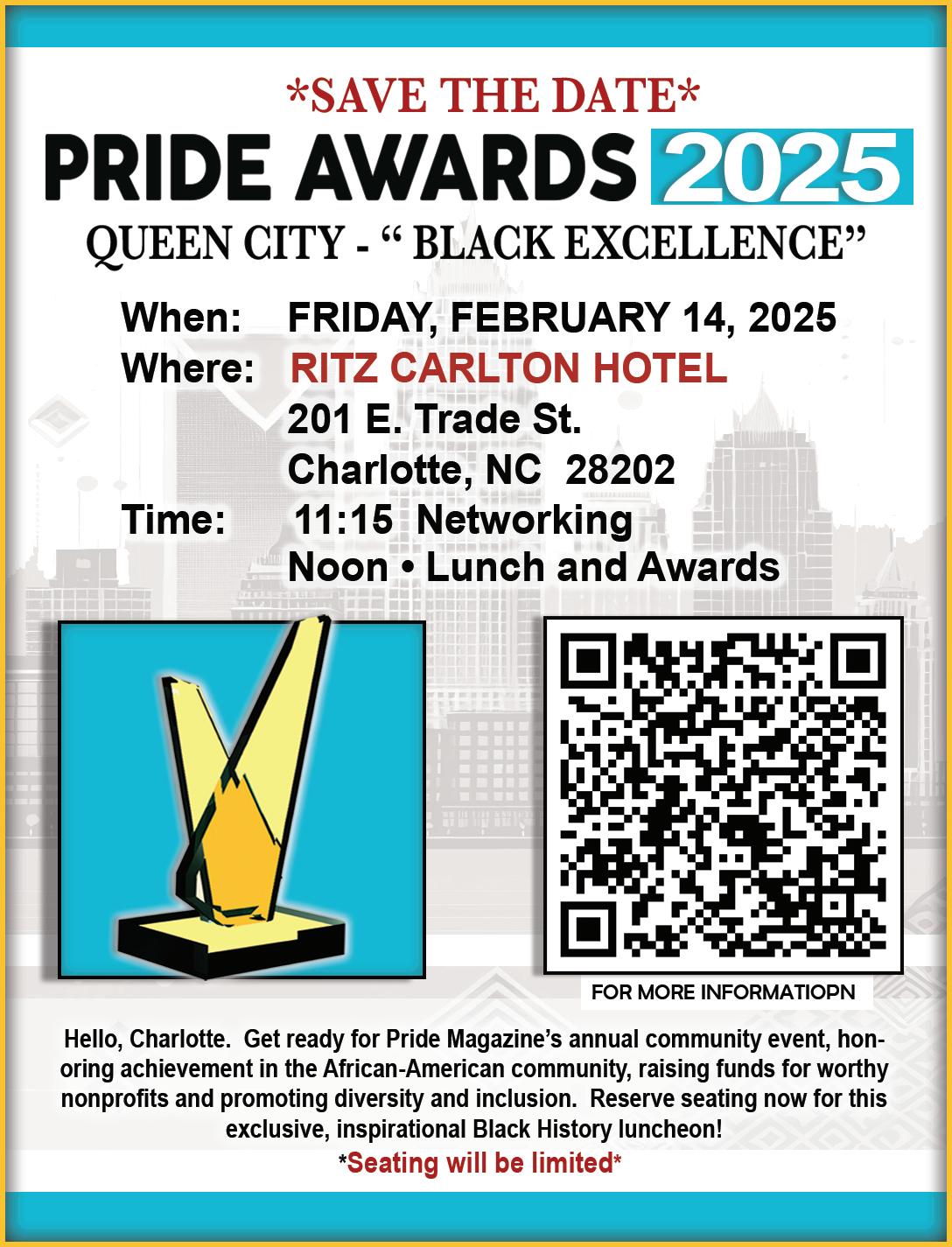
Alpha Kappa Alpha Sorority, Inc.
Motto: “By Culture and by Merit”
Famous members: Phylicia Rashad, Toni Morrison, Kamala Harris, Maya Angelou, Sunny Hostin
Causes: Empowering families, building economic wealth, enhancing the environment, advocating for social justice and uplifting the local community
Alpha Phi Alpha Fraternity, Inc.
Motto: “First of All, Servants of All, We Shall Transcend All”
Famous members: Martin Luther King Jr., Roland Martin, Barry Jenkins, Andrew Young, Thurgood Marshall
Causes: Voter engagement, mentoring, education and elder care
Delta Sigma Theta Sorority, Inc.
Motto: “Intelligence Is the Torch of Wisdom”
Famous members: Keisha Lance Bottoms, Nikki Giovanni, Ruby Dee, Ketanji Brown Jackson, Cicely Tyson
Causes: Education, health, international development and strengthening of the Black family
Iota Phi Theta Fraternity, Inc.
Motto: “Building a Tradition, Not Resting upon One!”
Famous members: Spencer Christian, Bobby Rush, Devon Still, Vaughn Booker, Kirby Wilson
Causes: Health, literacy, domestic abuse and human trafficking
Kappa Alpha Psi Fraternity, Inc.
Motto: “Achievement in Every Field of Human Endeavor”
Famous members: Ralph Abernathy, John Singleton, LeBron James, Johnnie Cochran, Colin Kaepernick
Causes: Community service, social welfare and academic scholarship
Omega Psi Phi Fraternity, Inc.
Motto: “Friendship Is Essential to the Soul”
Famous members: Michael Jordan, Rev. Jesse Jackson, Shaquille O’Neal, Carter G. Woodson, Langston Hughes
Causes: Voter registration, fatherhood, mentoring, literacy and diversification of STEM
Phi Beta Sigma Fraternity, Inc.
Motto: “Culture for Service and Service for Humanity”
Famous members: John Lewis, Kwame Nkrumah, Harry Belafonte, Terrence Howard, George Washington Carver
Causes: Community service, mentoring, education and improving health outcomes
Sigma Gamma Rho Sorority, Inc.
Motto: “Greater Service, Greater Progress”
Famous members: Fantasia, Kelly Price, Hattie McDaniel, MC Lyte, Carmelita Jeter
Causes: Women’s wellness, maternal and infant health and swimming
Zeta Phi Beta Sorority, Inc.
Motto: “A Community-Conscious, Action-Oriented Organization”
Famous members: Dionne Warwick, Zora Neale Hurston, Chaka Khan, Anita Hill, Sarah Vaughn
Causes: Youth, education, volunteerism and social and civic change legislation
a mighty impact on whatever issue we tackle,” Baldwin said.
While commemorating the illustrious history and lasting influence of the Divine Nine, many can draw inspiration from their journey of advancement, empowerment and optimism. Although the social functions are electrifying, and the paraphernalia is striking — it’s their service to others that remains their primary objective. The BGLOs serve as a source of motivation for all of us to pursue excellence and foster togetherness. P









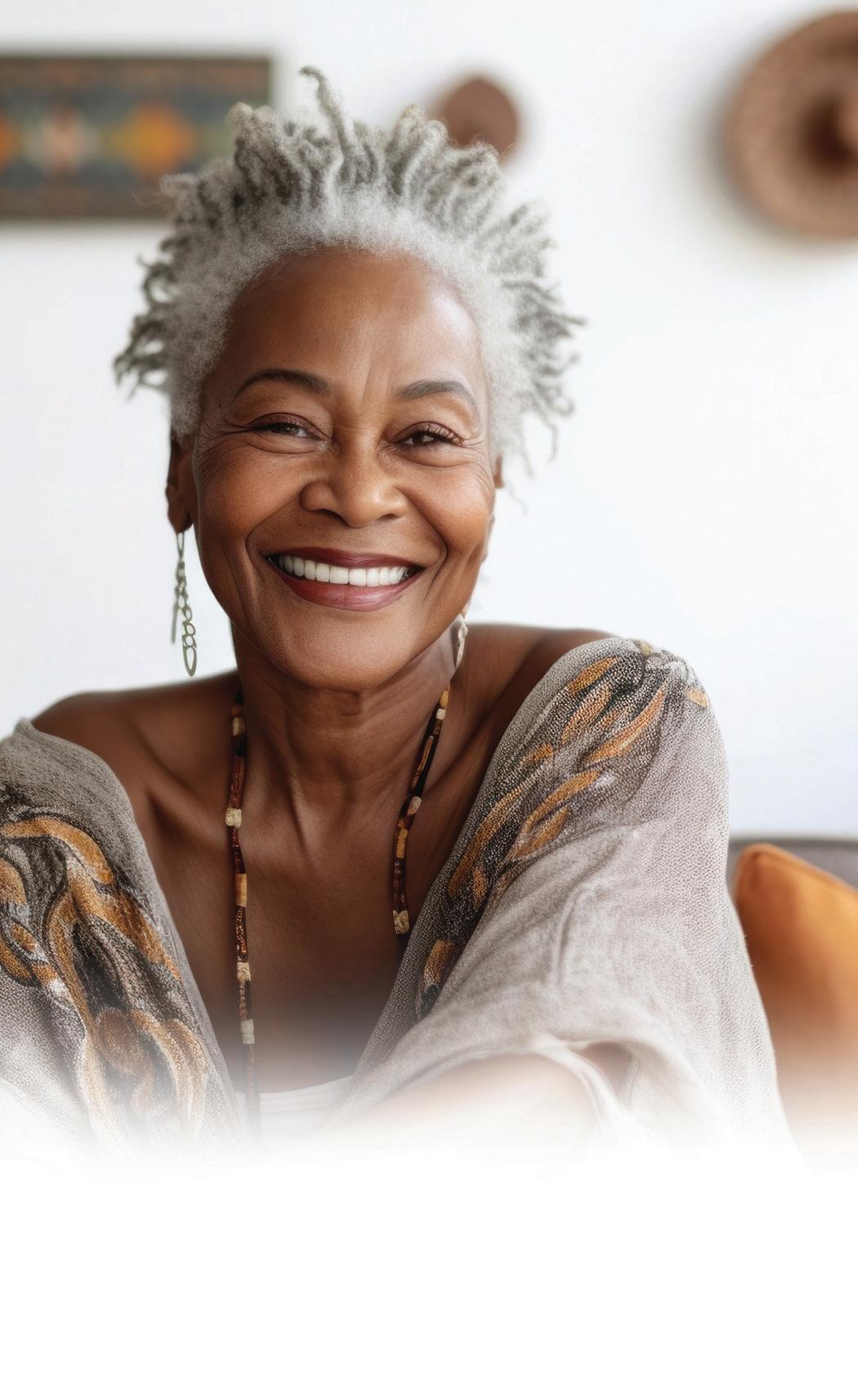



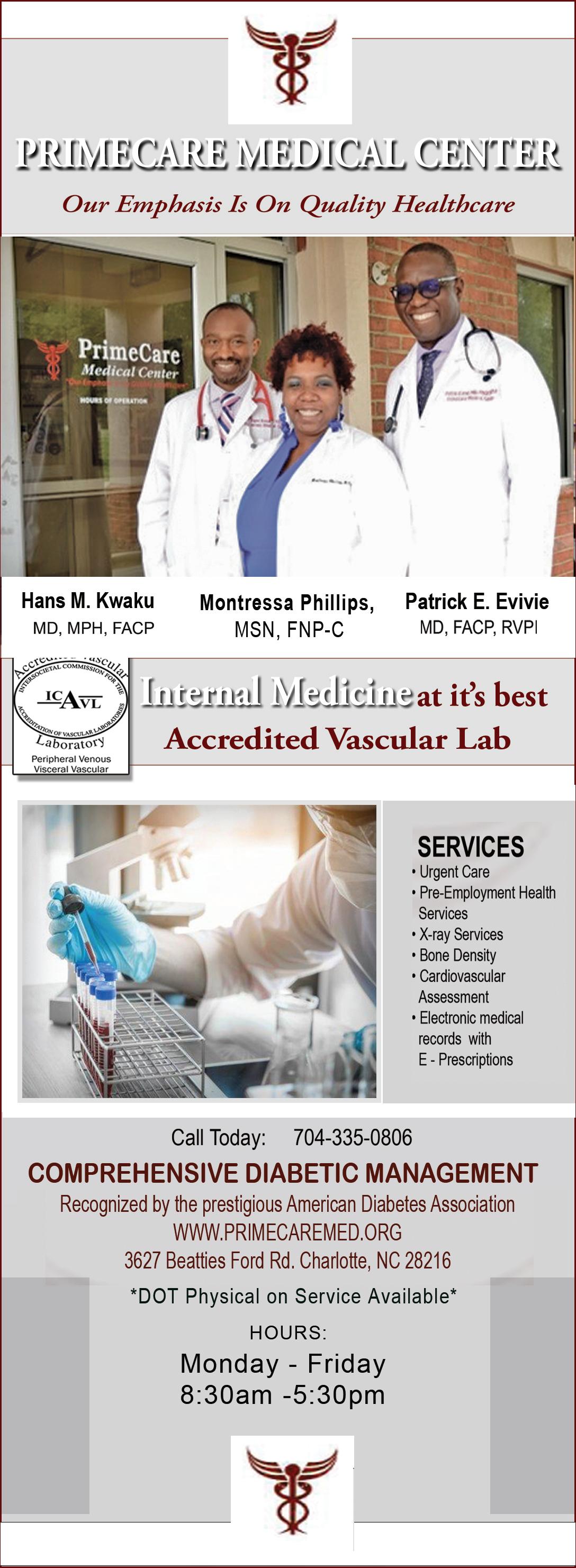


By Kurtavia Burton
or several years, the Mad Miles Run Club has offered a stimulating group experience for runners. This is not just any run club — walkers, sprinters, everyone can participate. Cornell and Vanity Jones created the club to give runners a safe place to learn, maintain a healthy lifestyle and reach goals. They offer runners of all experience levels support and an opportunity to run at their own pace.
Cornell and Vanity founded the Mad Miles Run Club in 2019. Graduates of Winston Salem State University, they have experience in track and field and cheerleading. They said they love creating opportunities for people to connect and help them get moving, stay active and have a good time. “A mile a day,” was the inspiration behind the “M.A.D.” in Mad Miles, and the club has grown into something the couple could hardly have envisioned.

The Mad Miles Run Club offers anyone who is interested an opportunity to run and engage with active people from various backgrounds. No experience is required and all are welcome — parents with children, skaters, even paw friends. You can join in on Mondays, Tuesdays and Saturdays at different locations throughout Charlotte. The distance and locations vary depending on the day. Tuesday runs, for example, are approximately 2 miles at Camp North End. The club currently has 222 paid members and counting. Members participate in special events and activities. There are also free options for participation.
Mad Miles Run Club believes in making anyone and everyone feel welcome when joining the community. “We’re exposing people to new styles of running and educating them,” said Cornell. “It’s a wellness space. It’s free therapy. We’re providing physical and mental boosts.” Cornell is also an ESPN sports producer who shares Black stories through storytelling. Though he enjoys both Mad Miles and ESPN, he said the two hardly overlap.
Cornell and Vanity celebrate their anniversary by establishing the first week of May as a weeklong celebration
of events for the Mad Miles Run Club community. There are panel discussions, a virtual race and social mixers, to name a few of the events. Throughout the year, there are activities that include skate nights, shoe drives and a media day.
In December, there’s an end-ofyear ball to raise funds for college scholarships. For this third year, the target amount is $10,000 from a combination of ticket sales, sponsorships and partnerships. The scholarship grantees must be active in the Mad Miles Run Club, complete an application and be a new, current, or graduate student. During Winston Salem State University’s Homecoming this year, the club will sponsor a special group running event. “The impact does not stop,” said Cornell.
With the large number of participants in Mad Miles Run Club activities, there are bound to be some challenges. Finding space, locations and personalizing attendees’ experiences is not always easy, Cornell said. For this reason,


The Mad Miles Run Club offers anyone who is interested an opportunity to run and engage with active people from various backgrounds. No experience is required and all are welcome — parents with children, skaters and even paw friends.
the club plans to open an indoor track in the future. Cornell and Vanity want to continue being intentional about giving back and showing up in the community.
Overall, Mad Miles Run Club is a growing community and a wellness space for anyone. It offers teamwork, dedication, friendship, uniformity and fun. Attendees can purchase brand attire in person at the You Vs Yourself gym at Camp North End in Charlotte.
The events, merchandise and media committees invite volunteers to help. The club will continue to empower and unite the community through running and education on runners’ etiquette.
For more information, visit madmilesrunclub.com and Mad Miles Run Club on social media platforms. P

Charlotte Preparatory School empowers children to write their own stories through our distinctive academic model, intentionally small size, and diverse, welcoming community. Our PreK-8 structure is a research-proven model that celebrates every stage of childhood. Our students stay a step removed from the presence and pressures of high school, allowing them to be children a little longer and leaders a little sooner.
Your Next Chapter Starts Here
Scan Code to Schedule Your Tour





At the core of our purpose—to build better lives and communities—are the values that guide us to be intentional about diversity, equity, and inclusion. We do the work every day to diversify our leadership, empower all teammates, fight for the opportunities we all deserve, and support organizations like Pride Magazine.





















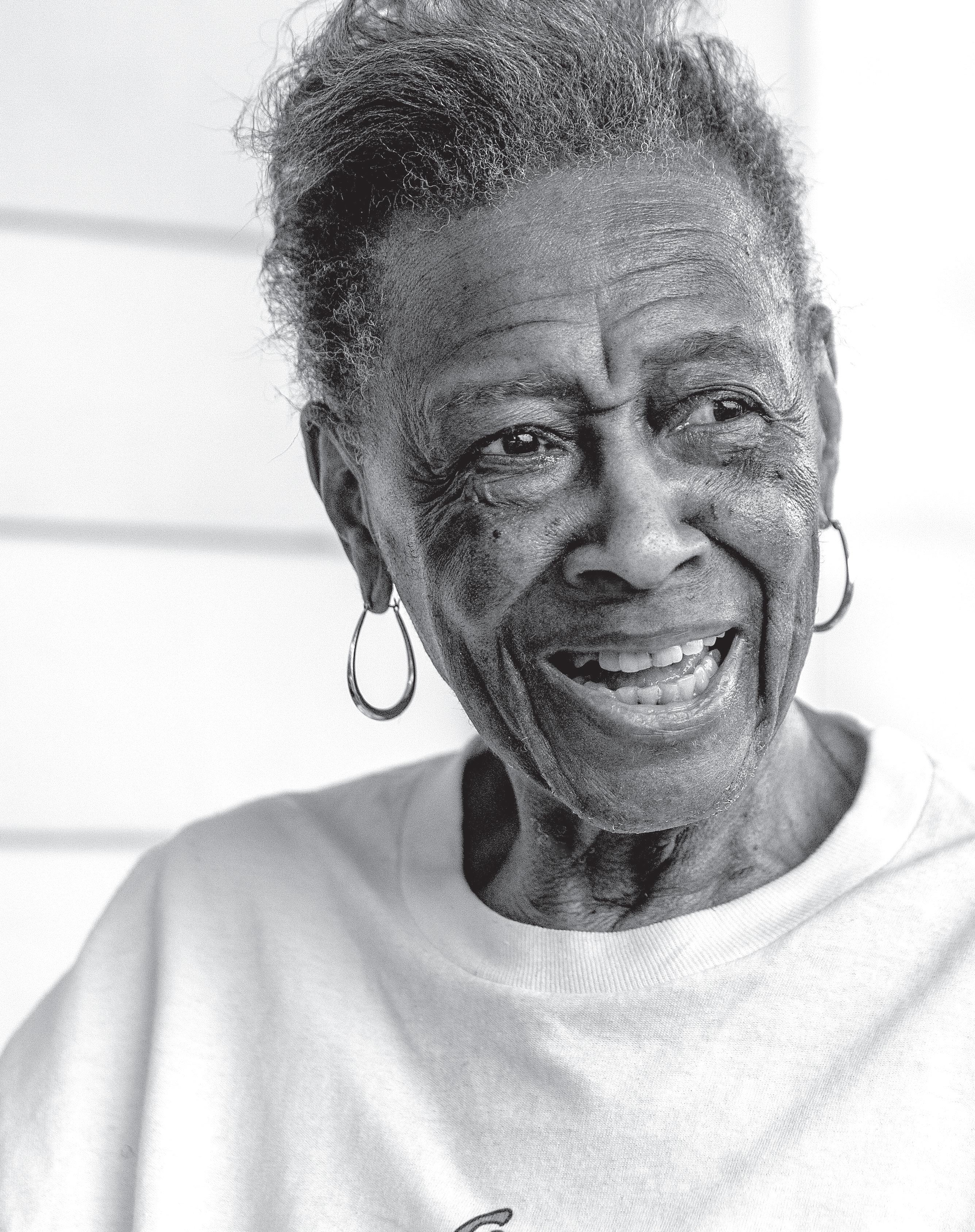















By Ruby Durham
The CLT Alliance Foundation isn’t just another foundation; it’s a dynamic launch pad empowering small business owners to catch their breath, think big, utilize their resources and turn their entrepreneurial dreams into reality.
More than just a hub for support, the CLT Alliance Foundation stands as a crucial intersection of capital, customers and connections, dedicating professional development opportunities to foster breakout success stories among small business owners and entrepreneurs.
According to the CLT Alliance Foundation, small businesses are the backbone of the American economy, accounting for nearly 50% of all businesses and driving 67% of new job creation. In Mecklenburg County, 37% of these small businesses are minority-owned, reflecting a diverse entrepreneurial spirit.
Many of these businesses face significant barriers, particularly in accessing the capital and connections necessary to thrive. Nate Hogan, president of the CLT Alliance Foundation, is determined to change that narrative.
“The foundation has been around since 2001 and we want people to think of us as the number one resource for small businesses for equity and growth opportunities based on where they are,” Hogan said.
At the foundation, the focus is on forward thinking strategies to empower small business owners that navigate the entrepreneurial ecosystem. The foundation offers robust funding options while following through with personalized coaching and support, actively addressing inequities that can stifle growth. From navigating the complexities of starting a business to establishing vital connections, the foundation provides the tools needed to break through traditional barriers.
“We have created programs to help small business owners feel armed with tools to be successful no matter if it’s areas within legal work, accounting or marketing,” Hogan said.
One of the CLT Alliance Foundation’s hallmark initiatives is the Charlotte Small Business Growth Fund. This innovative fund specifically targets underserved small businesses that may struggle to secure funding elsewhere. By partnering with mission-driven community development financial institutions, the foundation ensures that entrepreneurs receive ongoing coaching and mentorship in addition to financial support.
Another key initiative is Scale Up CLT, the city’s premier accelerator designed for businesses poised for expansion. In collaboration with the city of Charlotte and the Entrepreneurs Organization Charlotte, Scale Up CLT specifically caters to businesses with revenues between $250,000 and $1 million. This program aims to enhance the competitiveness of minority-owned businesses, providing them with the tools and resources they need to scale effectively.
Visibility is another crucial element in the success of small businesses. The foundation’s digital marketplace connects mid-market companies with contracting opportunities, elevating the profiles of smaller enterprises looking to establish vital partnerships. Furthermore, the RISE Digital Resource Hub harnesses innovative AI technology to deliver 24/7 access to essential resources for entrepreneurs, ensuring they have the information they need to succeed at any time.
Professional services also play a critical role in the foundation’s offerings. Through partnerships with organizations like the Charlotte Legal Initiative to Mobilize Businesses, Inc. (CLIMB), entrepreneurs can access pro bono legal, marketing and accounting services, ensuring they are well-supported in their ventures.

The foundation’s commitment to thought leadership and promotion aids in navigating the complex entrepreneurial ecosystem, equipping business owners with the insights and connections necessary for success.
Recognizing that mental wellness is integral to sustainable entrepreneurship, the foundation prioritizes the “Catch Your Breath” program. This initiative acknowledges the unique challenges faced by entrepreneurs, nearly half of whom experience mental health conditions during their lifetime — a significantly higher rate than their nonentrepreneurial counterparts.
Catch Your Breath provides education, accountability, and peer support, equipping entrepreneurs with tools to combat burnout and stress. Through workshops focused on financial wellness, stress management, and a dedicated 12-week personal wellness accelerator cohort, the program nurtures resilience and community among business owners.
The CLT Alliance Foundation is not just transforming individual businesses, it is reshaping the entire Charlotte Region’s economic landscape and paving the way for a new era of success from one small business owner to the next, Hogan said. “It is all about impact, nothing else.” P
“We have created programs to help small business owners feel armed with tools to be successful no matter if it’s areas within legal work, accounting or marketing.”
—Nate Hogan, president of the CLT Alliance Foundation














By Angela Lindsay
When Yandrick Paraison first envisioned starting a golf tournament, he never imagined it would expand so quickly.
The event was born from a long-held but simple vision of “fostering togetherness and camaraderie among family and friends while offering a unique and exciting experience for golfers of all skill levels,” he said. Now, the tournament boasts perennial sell outs, enthusiastic sponsorships and an increasing presence in other states.
The Paraison Invitational Golf Tournament and Diversity In Sports Hub is a multiday experience beginning with a Women’s Golf Clinic to promote inclusivity, followed by a Diversity in Sports Forum and Career Fair focused on creating opportunities for underrepresented groups in the sports industry. The Tee-Off Cocktail Reception, the golf tournament itself, and the day party ensure there is something for everyone to enjoy, even non-golfers. The weekend ends with a celebrity “Closest to the Pin” competition.
As its founder, Paraison said he believes an event like this is important for a city like Charlotte because it brings the community together while highlighting the city’s spirit of generosity and unity.
“It provides an opportunity for individuals and businesses to collaborate for a common cause, all while showcasing Charlotte’s vibrant culture,” he said. “Events like these can boost the local economy, attract visitors and create a positive ripple effect for charities, local organizations and businesses. It reinforces Charlotte’s identity as a city that cares about giving back and supporting those in need.”
To that end, the tournament periodically rotates the charities it supports to spread the impact across different causes. The organizations are selected based on the meaningful impact they have within the community. For instance, in recent years, they have proudly partnered with the charity, A Kid Again, which serves over

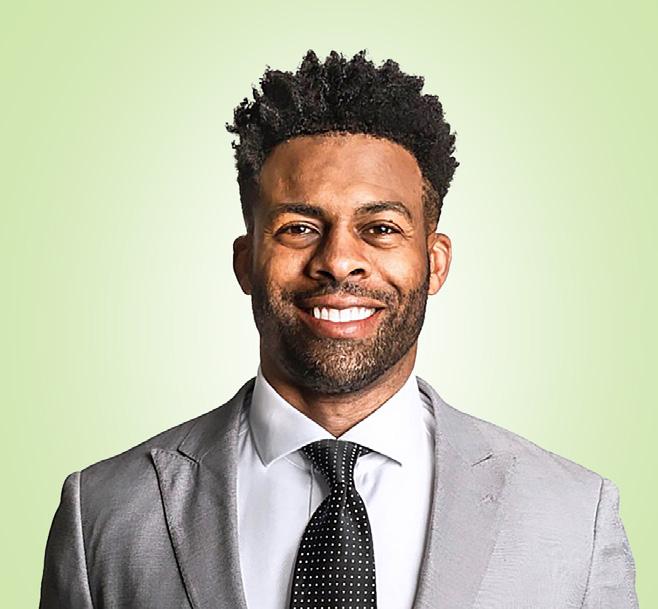
9,950 families across the Carolinas. Moving forward, Paraison said the tournament aims “to continue supporting causes that make a significant difference in people’s lives.”
The tournament enlists the help of the community at large as well as major sponsors to assist in this charitable quest. “We’ve been incredibly honored to partner with some outstanding organizations,” Paraison said. Those organizations include the Charlotte Hornets, the Professional Golfers’ Association of America (PGA), the Carolina Panthers, Charlotte FC (MLS), Ally, Cadillac, WSOC-TV, Tito’s Vodka, Uncle Nearest Whiskey, Old Hillside Bourbon, University of North Carolina at Charlotte and CPI Security.
“Our past title sponsor, Equitable, and current title sponsor, Truist, have been invaluable in their support. We’ve also received tremendous backing from local businesses like Duck Donuts, HKB Cosmetic Surgery and Kikaboni,” he said.
While there are several golf tournaments that occur in the city, The Paraison Invitational Golf Tournament is unique in that it incorporates a Diversity In Sports Hub which is key to its mission of fostering inclusion and diversity within the sports industry by empowering organizations to engage diverse communities effectively and create equitable opportunities for all through its proprietary Consumer Engagement Guides, industry benchmarking and DEI strategy consulting.
The hub features networking sessions, expert panels, and interactive discussions
“We’ve inspired many to take up golf, and our partner list grows annually — solidifying us as North Carolina’s premier golf event.”
—Yandrick Paraison, founder of The Paraison Invitational
that empower attendees to grow in the field. Participants can expect to leave with “valuable insights and connections,” Paraison said. The Diversity In Sports expert panel, in particular, is evolving and its reach has now expanded beyond the Charlotte area to due to ever-increasing interest in its content and outcomes.
“We’ve partnered with the PGA and Ally to expand the panel, hosting three events in 2024/2025,” said Paraison. “We started in D.C. at Howard University in September, followed by Atlanta in March, and will wrap up at the PGA Championship at Quail Hollow in May. This allows us to reach even more communities.”
The tournament sold out and reached full capacity in its very first year — and continues to do so. Paraison attributes this achievement to the power and support of the community which only reinforces his commitment to giving back.
“The response has been incredible. We’ve sold out every year. The community has shown amazing support, with celebrities, local leaders, and even Mayor Vi Lyles participating,” he said. “We’ve inspired many to take up golf, and our partner list grows annually — solidifying us as North Carolina’s premier golf event.”
In June, Paraison received the 2024 Emerging Leader Award in Sports at WFAE’s first EQUALibrium Awards Gala for his work. Paraison said he is humbled and grateful for the recognition, and he and his team are already gearing up to celebrate the event’s 5-year anniversary scheduled for May 31, 2025 with plans for what he promises will be “a week full of exciting events.”
“The event’s growth reaffirms my belief in the power of community and the importance of giving back. I’m deeply grateful for this success and look forward to continuing our mission to make a positive impact in Charlotte and beyond," he said. P


Sponsored by
Cardiovascular disease – also known as heart disease – is the leading cause of death in the US.1 Black Americans experience disproportionate rates of cardiovascular disease,1 including a serious and often underdiagnosed condition called Peripheral Artery Disease (PAD).2 PAD affects up to 12 million Americans,3 yet Black Americans are more than twice as likely to have PAD compared to other Americans4 and have less access to quality cardiovascular care.5
PAD occurs when arteries carrying blood, particularly to the limbs, become clogged with plaque.4 If left untreated, PAD can increase the risk of serious health issues such as heart attack, stroke, and amputation.4 Seventy percent of people with PAD who have a leg amputation die within three years6 –devastating families and communities.
Save Legs. Change Lives.™ is a multiyear initiative aimed at creating urgency and action to address the hidden threat of PAD-related amputation through research, collaboration, education, and screening. Through this program, a team of experts from across Johnson & Johnson travels the country to provide free education and PAD screening events in communities with higher levels of health inequities. Working alongside partners from local healthcare organizations, churches, and advocacy groups, they aim to break down barriers to access and advance equitable care for Black Americans and others affected by PAD.
“Knowledge is prevention,” emphasizes JaBaris Swain, MD, Medical Executive, Health Systems Integration at Johnson & Johnson. “By offering comprehensive educational resources
and conducting screenings, we can empower individuals to understand their risk factors for PAD. This knowledge enables them to take proactive steps in seeking appropriate care, thereby reducing their risk of PAD and its potentially devastating consequences, such as amputation.”
“Knowledge is prevention.”
—JaBaris Swain, MD
Some factors that may elevate your risk for PAD include: increasing age, family history of heart disease, prior stroke, diabetes, high cholesterol, obesity, high blood pressure, and history of smoking.7 If you think you or a loved one may be at risk, talk to your doctor.
Empower yourself with knowledge to ignite conversations about PAD with your loved ones and healthcare providers. Visit SaveLegsChangeLives.com.
1 Centers for Disease Control and Prevention. Heart Disease Facts. Accessed July 16, 2024. https://www.cdc.gov/heart-disease/data-research/ facts-stats/index.html
2 Afzal N, Sohn S, Scott CG, et al. Surveillance of peripheral arterial disease cases using natural language processing of clinical notes. AMIA Jt Summits Transl Sci Proc. 2017;2017:28-36.
3 Gornik H, Aronow H, Goodney P, et al. 2024 ACC/ AHA/AACVPR/APMA/ABC/SCAI/SVM/SVN/SVS/ SIR/VESS guideline for the management of lower extremity peripheral artery disease: a report of the American College of Cardiology/American Heart Association Joint Committee on clinical practice
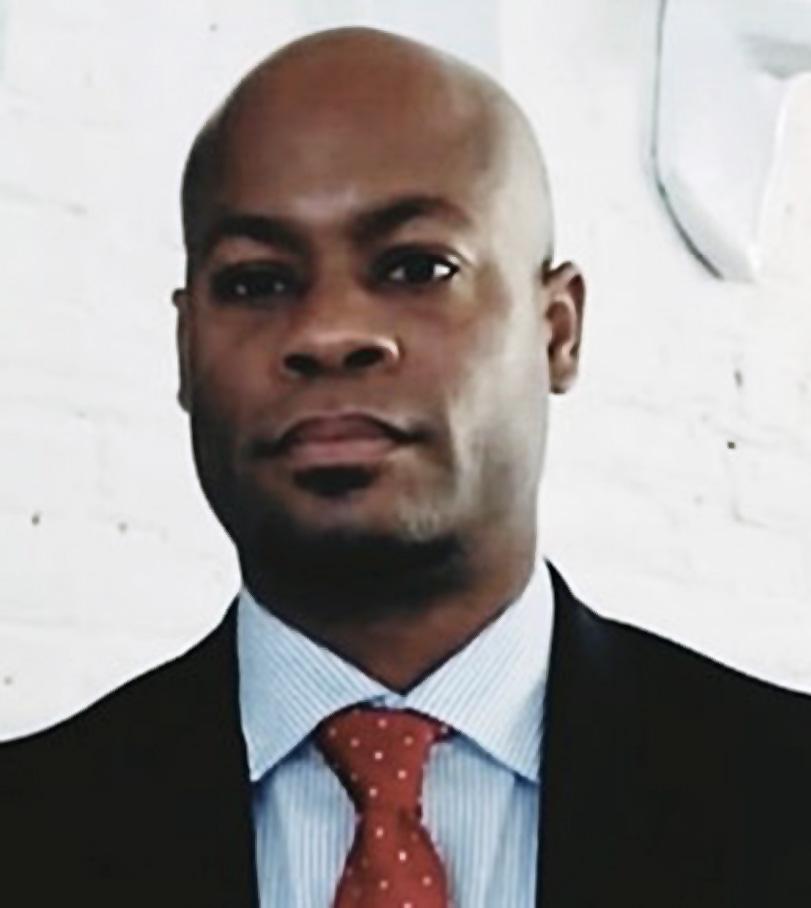
guidelines. Circ. 2024;149:e00-e00. Doi: 10.1161/ CIR.0000000000001251
4 National Heart, Lung, and Blood Institute. Facts about peripheral artery disease (P.A.D.) for African Americans. Accessed June 28, 2024. https://www.nhlbi.nih.gov/resources/facts-aboutperipheral-artery-disease-pad-african-americans
5 Assistant Secretary for Planning and Evaluation: Office of Health Policy. Health insurance coverage and access to care among Black Americans: recent trends and key challenges. Accessed July 16, 2024. https://aspe.hhs.gov/sites/default/files/documents/ 4fc0ddbcee8d583d57e399dad6201536/aspecoverage-access-black-americans-ib.pdf
6 Jones WS, Patel M, Dai D, et al. High mortality risks after major lower extremity amputation in Medicare patients with peripheral artery disease. Am Heart J. 2013 May;165(5):809-15, 815.e1. doi:10.1016/j.ahj.2012.12.002
7 Mayo Clinic. Peripheral artery disease (PAD). Symptoms and causes. Accessed July 16, 2024. https://www.mayoclinic.org/diseases-conditions/ peripheral-artery-disease/symptoms-causes/ syc-20350557
© Janssen Pharmaceuticals, Inc. 2024 07/24 cp-449705v1
If you think college is out of reach, think again. At Central Piedmont Community College, we offer $3 million in scholarships that help students afford their education, get closer to their goals, and conquer possibility. cpcc.edu/afford

Being able to go to school without worrying about costs — I’m just grateful.
“ ” Tyler

By Charles K. Harris
When 20-year-old Madison Hayes was preparing her college applications she had a few doubts.
“(Cost) was a pretty big stressor at first,” said Hayes, who is currently a sophomore psychology major at the University of North Carolina at Charlotte. “But I’ve managed to pay through financial aid, loans, grants, money I saved from working, and my parents.”
Hayes is hardly alone. Of the millions of African American high school graduates preparing for college, cost remains a potential roadblock.
The College Board reports that during the 2021-2022 academic year, average public in-state tuition was around $10,700. This does not include housing and transportation which can vary widely.
“The most common hurdle to achieving a post-secondary education is cost,” said Gregory “Dee” Rankin, Vice Chair of the Charlotte-Mecklenburg Schools Board of Education. Rankin, whose career in education has transitioned into nonprofit work in youth development, points to the connection between education and career success.


“It’s essential to explain to our youth that obtaining a degree, along with a solid plan, significantly increases their chances of securing a higher-paying career compared to those who do not pursue further education,” he said.
Kendrick J. Britton, PhD, a psychotherapist who practices across the state, holds an associate’s degree, two bachelor’s degrees, two master’s degrees and a doctorate, said the obstacle for Black youth is more expansive than just cost.
“The number one hurdle is the mentality that is fostered in the Black community. Black youth do not collectively have the resources or guidance needed to see beyond their circumstances,” said Britton.
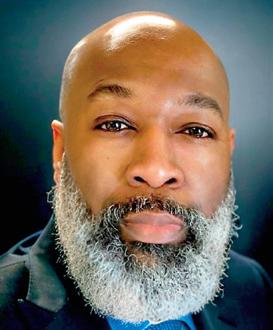
Kendrick J. Britton, PhD, is a psychotherapist
Those “circumstances” include fear of failure, limited information about education options, immediate work demands, leaving family and lack of exposure to successful degree holders, he said.
Statistics show that Black college admissions have taken a downturn.
The Postsecondary National Policy Institute reports that since the fall of 2010, Black student enrollment dropped from 3.04 million to 2.38 million, a decline of 22 percent. While U.S. college enrollment has taken a slight dip in general since 2010, rates are higher among Black youth.
Rankin has a very succinct message for apprehensive students.
“My advice to students who may feel overwhelmed is to take the time to thoroughly research colleges,” he said. “Ensure that the college you choose is a good fit academically, financially, culturally and socially.”
Hayes said she should have done more research and planning prior to choosing a college. “I procrastinated. This led to intense pressure. I advise registering as soon as possible,” she said.

Gregory “Dee” Rankin, Vice Chair of the CharlotteMecklenburg Schools Board of Education
Hayes credits her parents — her mother holds a master’s degree — and elder sisters, both college graduates, for allaying some of her apprehensions. Hayes said they “led by example” and seemed “happy” with their choice to seek degrees.
Unfortunately, Hayes is in the minority. Most Black youth have not grown up in households with degree holders.
It is estimated that roughly 34.2 percent of African Americans who are 25 to 64 years old hold a college degree, versus over 50 percent of whites in the same age group. Britton contends this is not an automatic disqualifying factor.
A native of Pitt County, N.C., Britton, 49, was one of eight children raised by parents who left school before 10th grade.
It is estimated that roughly 34.2 percent of African Americans who are 25 to 64 years old hold a college degree, versus over 50 percent of whites in the same age group.
“My parents never encouraged us to go to college,” he explained. “(They) promoted hard work.”
Britton explained that his ambitions were fueled by interacting with similarly focused students while still in high school.
“Speak with someone outside of your family with more perspective,” Britton recommends. “Look around and tell me what you see...is (this) where you want to end up? Are the people there doing what you want to be doing?”
Despite strides in educational equality and accessibility in the last 50 years, the disparity of opportunity between the races is still gaping. While it may require extra effort for students of color to successfully complete a secondary education, the benefits are multifold.
Available data shows college graduates are half as likely to be unemployed as those only holding a high school diploma or equivalent. Bachelor’s degree holders earn on average 86% more than those without a degree. But the benefits of secondary education go beyond dollars and cents.
Degree holders also, on average, report better mental health and contentment. For Hayes, the respect that accompanies a secondary education is also fulfilling. “Completing college is a well–regarded accomplishment!” she said. “It shows others that you have drive and an excellent work ethic.”
Britton agrees that his degrees come with respect, but he values the personal effects. “Because I was able to work hard and obtain multiple degrees and licenses, I am confident that if I believe it, I can achieve it. My spiritual and emotional health are better,” said Britton.
“When things get tough (in college), I remember my aspirations to make a valuable contribution in my field,” Hayes said.
Britton said finishing a degree is only the beginning of the impact education can have on a person. “My place in society feels solid. That said, I have only scratched the surface of my potential in this area,” he said. “There is more work to be done.” P






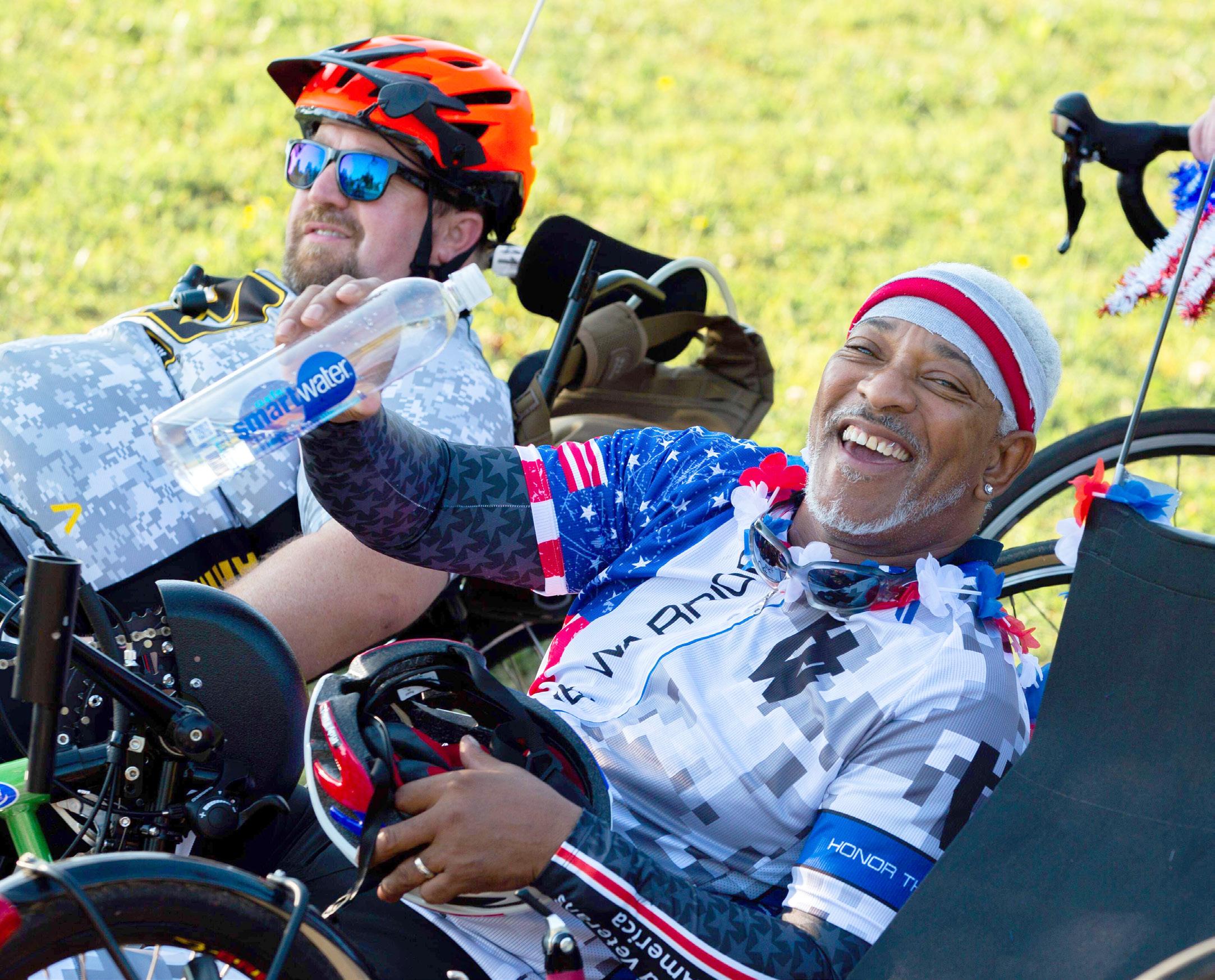
By Rosanny Crumpton
Honor the Warriors, a local nonprofit organization, completed their 15th annual two-day biking event in October — engaging with the community while celebrating veterans.
Day one of the event was a 16-mile ride that began and ended at Eastway Park with a ride through Charlotte’s
best-known landmarks. Riders enjoyed the love and cheers, making stops along the way and receiving an outpouring of support. Construction crews, city workers and other professionals from businesses Uptown waved as riders were escorted by the Mecklenburg County Sheriff Department.
Jerry Morris, Honor the Warriors executive director, explained the remarkable feeling when he first realized what an unexpected sound was one year during the ride. “We’re going under 277 and you have all that traffic noise, but
there’s something else — like a roar. Once we got under 277, it’s the kids greeting us. They set up such a noise just cheering and clapping,” Morris said.
The roar was from elementary students at First Ward Creative Arts Academy. Veteran riders stopped to greet the children and answer their questions while the kids examined their bikes before continuing their race.
Day two of the race started at Arlington Baptist Church in Mint Hill and offered three route options for riders: 17 miles, 34 miles or the 68-mile route.

Depending on the route, participants rode through Mecklenburg, Union, Cabarrus or Anson counties with rest stops along the way for snacks, drinks, and restroom visit. At the finish line, there was a hot lunch waiting for them. The Mint Hill Women’s Club supports the annual event and the organization.
Honor the Warriors started around a kitchen table with the goal to encourage veterans to get outside and interact with other veterans and community members.
Tony Hawkins, Honor the Warriors rider and veteran, shared that an average of 24 vets a day commit suicide. He described getting off the couch, out of the house and being able to move himself on the bike with conviction as world changing for him.
Tony was in a wheelchair for 15 years. He started as a rider on a handcycle. About 9 months ago, he was told his bone health had improved and he’s now able to use leg strength. He traded his handcycle for a tricycle and has been using one ever since. He rode 562 miles this past year.
Paul Belk, a fellow Honor the Warriors rider and vet, similarly started out as a hand cyclist. He fell in love with riding and obtained a hand cycle from the Department of Veterans




Affairs. “Somewhere along the way, I found out that I could strap my feet onto the pedals, and I could pedal with my legs, and that changed my world,” Belk said. “Last year was my most successful riding year. I rode the 34-mile racecourse in 2 hours.”
“[Riding with Honor the Warriors] is mentally freeing and it’s physically good for you,” Belk added. “That’s the power behind this program. Being accustomed to physical workouts as a soldier in the military service, you’re used to the edge. When you get injured, that edge dies or dulls. This revives that,” he said.

“What I always enjoy about this group is our shared experience no matter what era. I’m a Cold Warrior. We have Desert Storm veterans, and no matter what era, you have this common bond and common language and common respect for one another because of what we’ve all accomplished,” said Ellen Houlihan, a fellow veteran and Honor the Warriors rider.
While obtaining equipment can be a cumbersome, lengthy process and cost anywhere between $1,500 for a basic tricycle to $12,000 for a customized

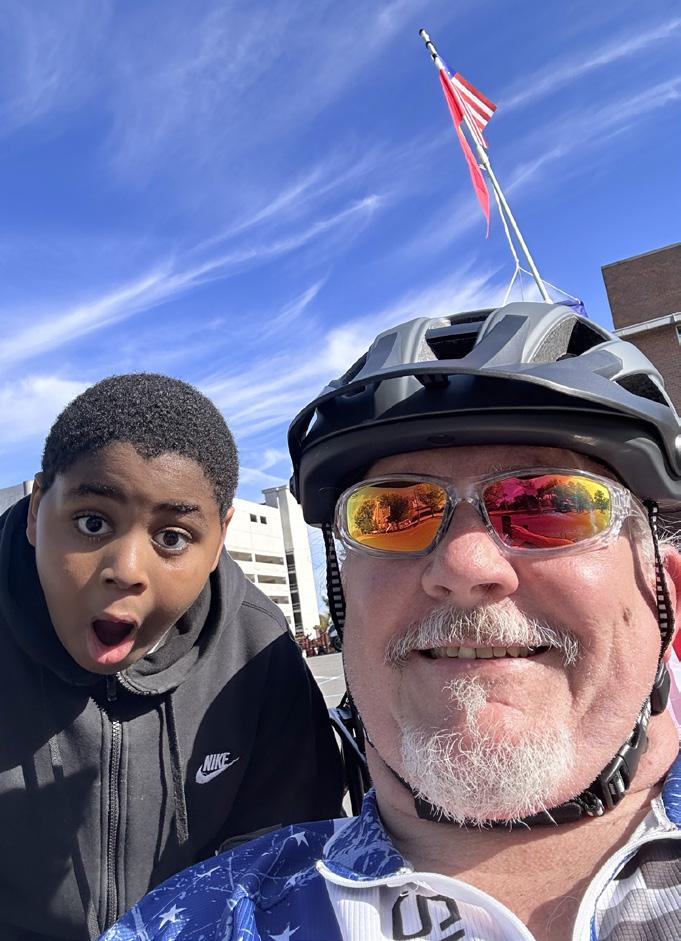
one, Honor the Warriors makes it easy with their leasing program that consists of a yearly donation from the veteran leaser.
Jane Morris, wife of Jerry Morris, explained that everybody in the organization is a volunteer. There are no paid positions. They operate 100% by donations. “Jane and Jerry are the heart,” Tony Hawkins said about the husband-and-wife duo.
Honor the Warriors joins other organized rides every other month as part of their community building efforts. They provide lunch and pay the registration fee for Honor the Warriors riders. “New riders need support to get through it stronger,” said Jane.
It costs about $12,000 a year to hold the annual ride with money raised from sponsors, which helps lodge and host disabled veterans who come to town for the event.
Funds raised by the organization also help with year-round bike repairs and helmets that the organization donates to police officers to hand out when they see a child riding a bike without a helmet.
Veterans and non-veterans are invited to join the organization’s weekly rides. They meet at 6:30 p.m. at the Harris Teeter in Brighton Park in Mint Hill, N.C. Immediately following the ride, the group enjoys a meal and fellowship at a local restaurant.
Learn more at www.honorthewarriors.org. P
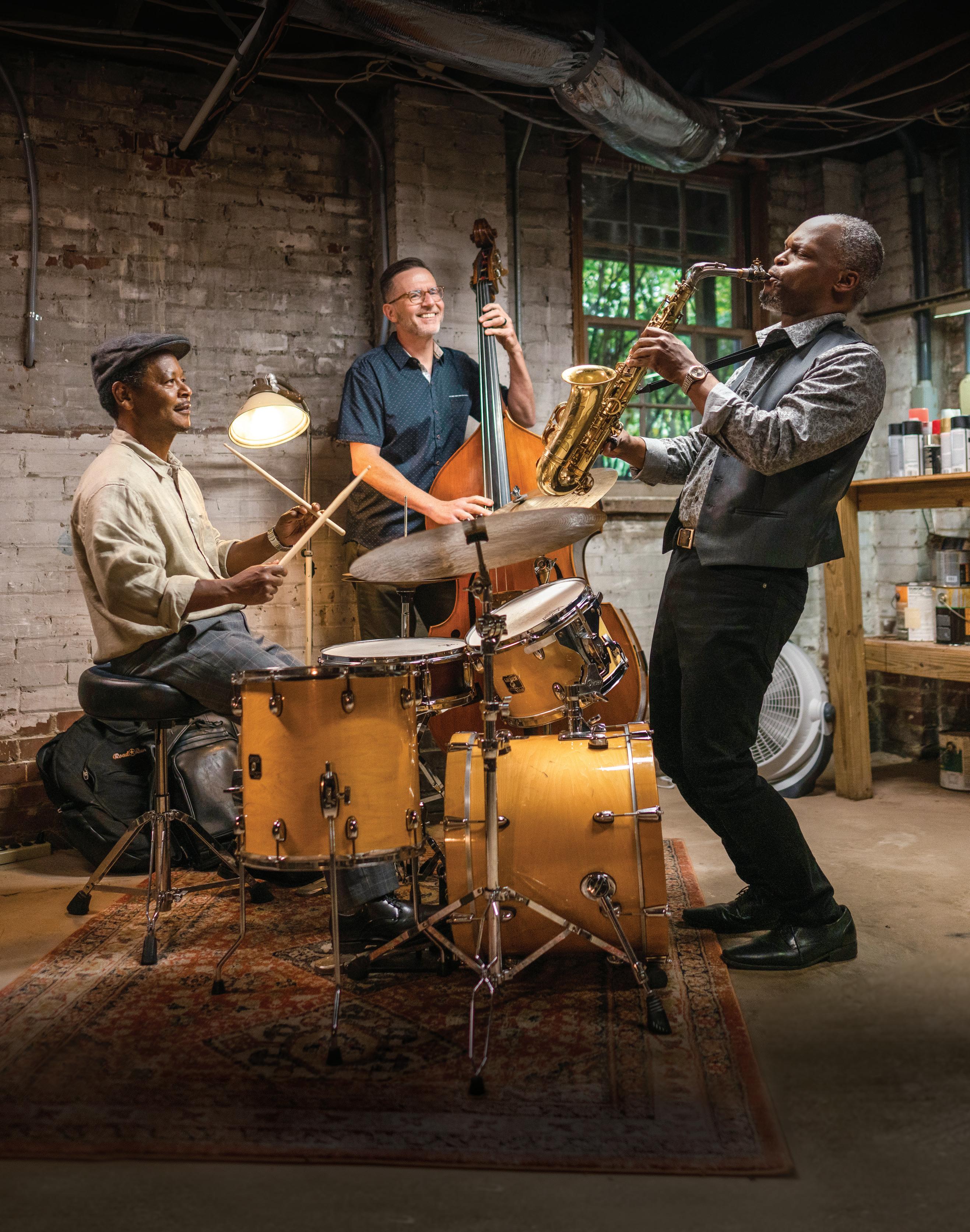
This is what life is supposed to feel like. When you aren’t held back. When you have a health partner that doesn’t just treat part of you – they care for all of you. That’s why more people prefer Atrium Health, with the most complete care that lets you get back to the moments that matter. That’s what it’s like to live fully. live fully

Women make up 50% of our workforce at Bank of America. We proudly continue to recruit and invest in helping women succeed within our organization. Outside, we support the economic empowerment of women in our communities and all around the world.
We believe that achieving strong operating results — the right way — starts with our teammates, and we know we must reflect the diversity of the clients and communities we serve. We offer a range of development programs for female leaders who show potential as future business and C-level executives, including our Women’s Executive Development Program, to engage, develop, retain and support the career advancement of high potential talent.
Our ongoing work to invest in women means supporting women business owners and putting into action the belief that female entrepreneurs are fundamental to driving strong, healthy economies.
Through our partnerships with Vital Voices, the Tory Burch Foundation, the Cherie Blair Foundation, Cornell University and Kiva, we’ve helped 75,000 women from more than 85 countries grow their businesses.
To learn more, visit our Empowering Women page at bankofamerica.com/women.